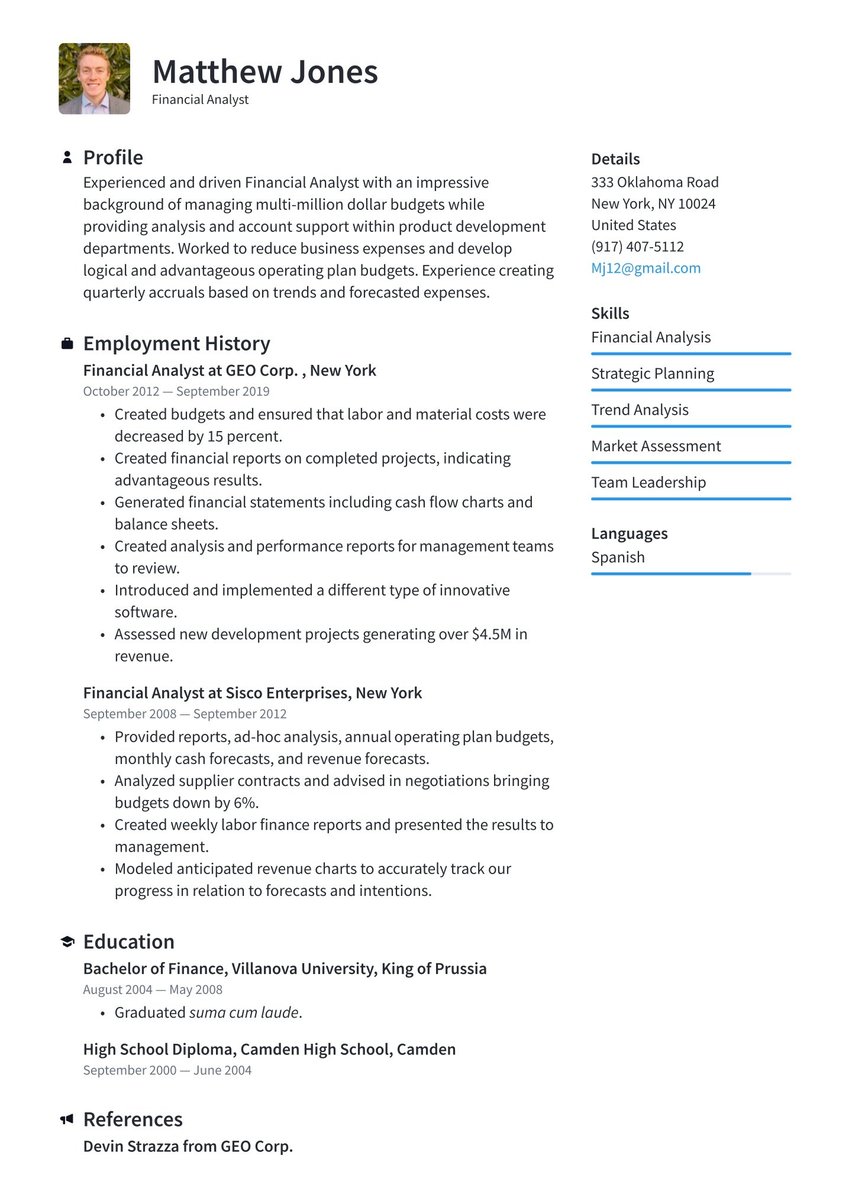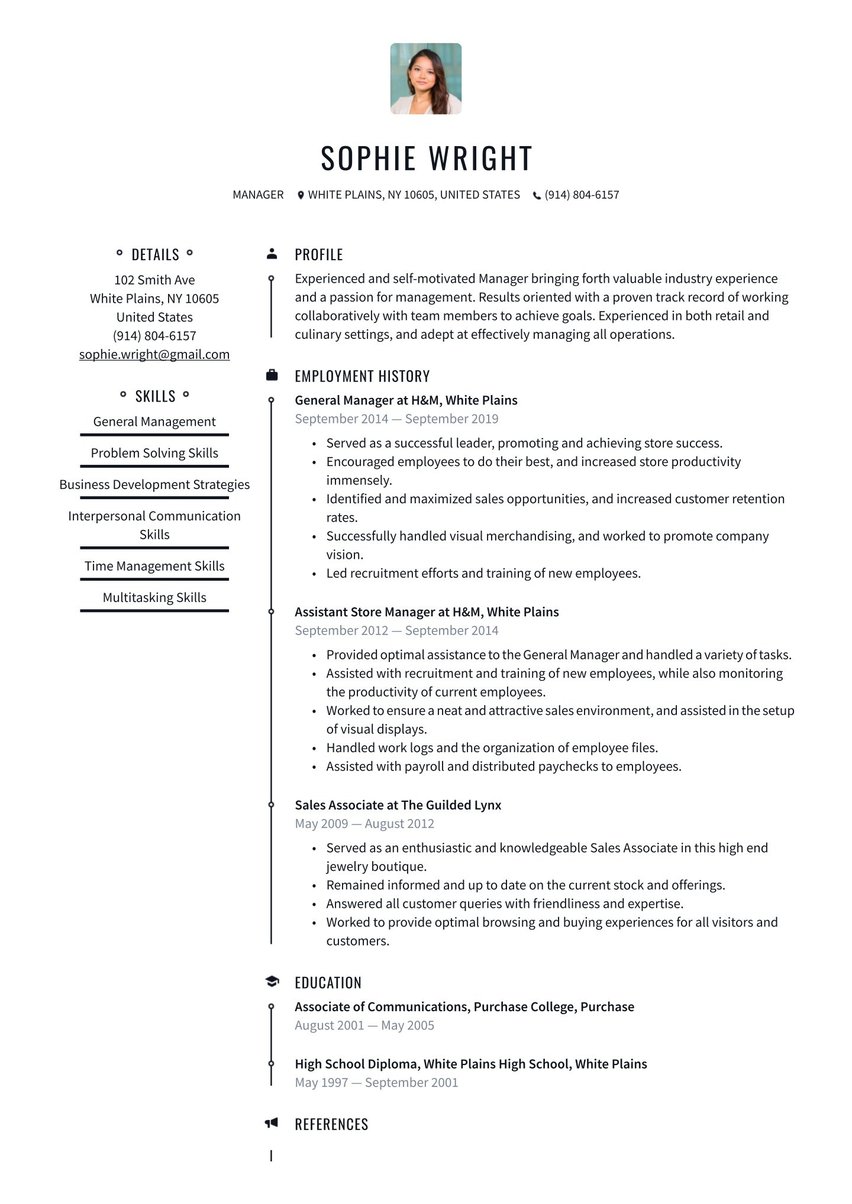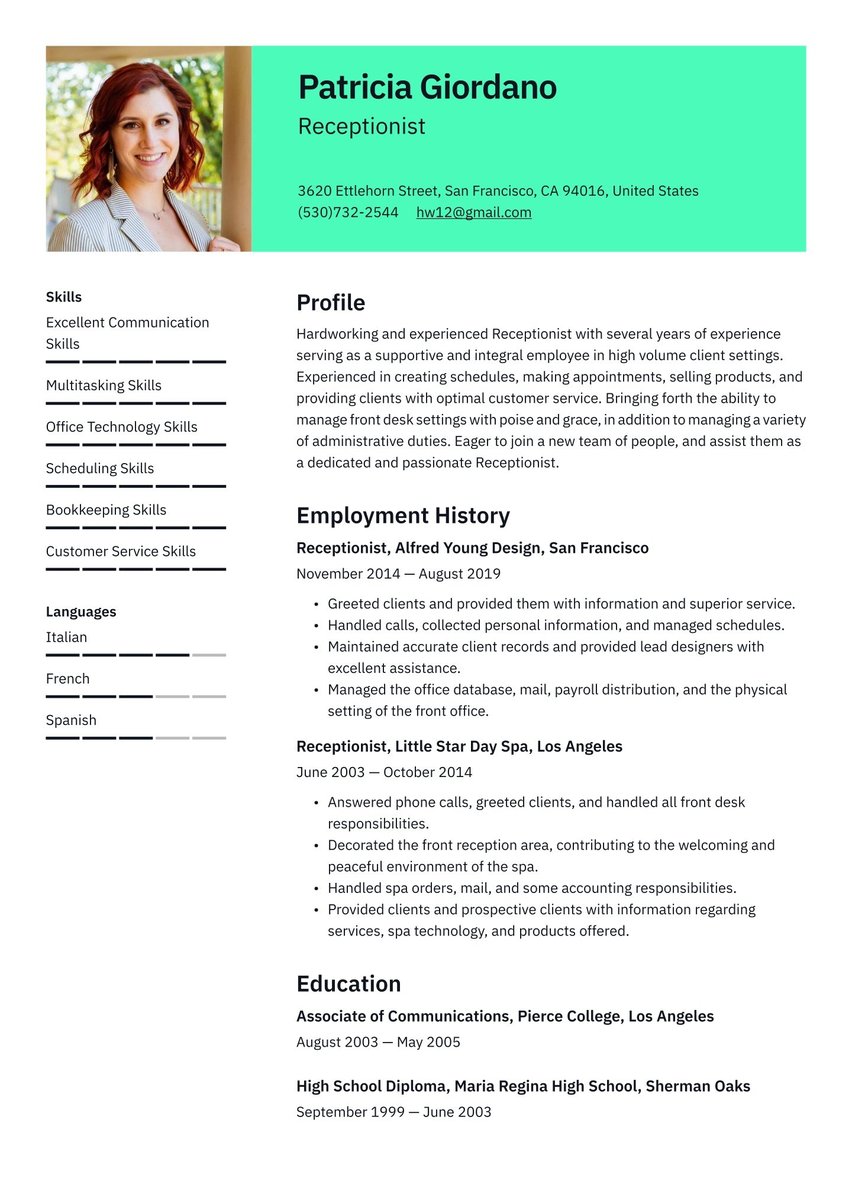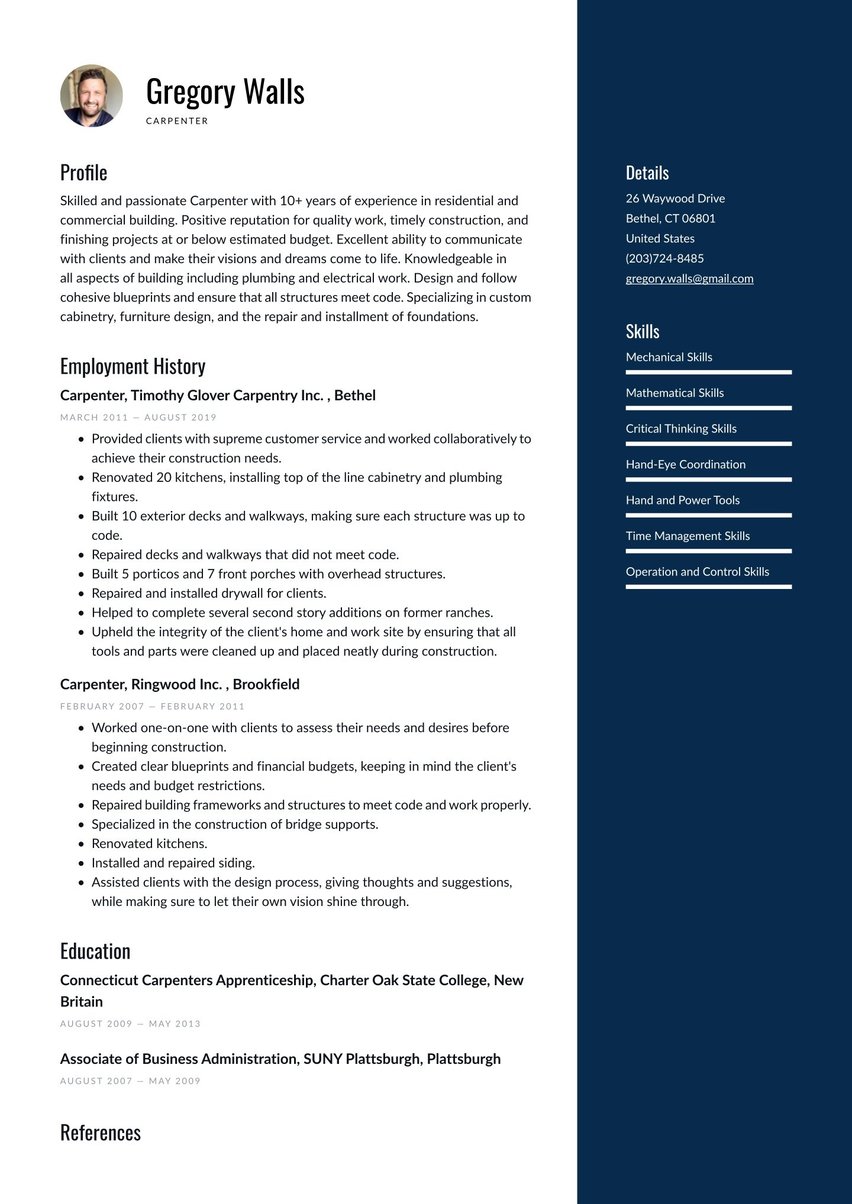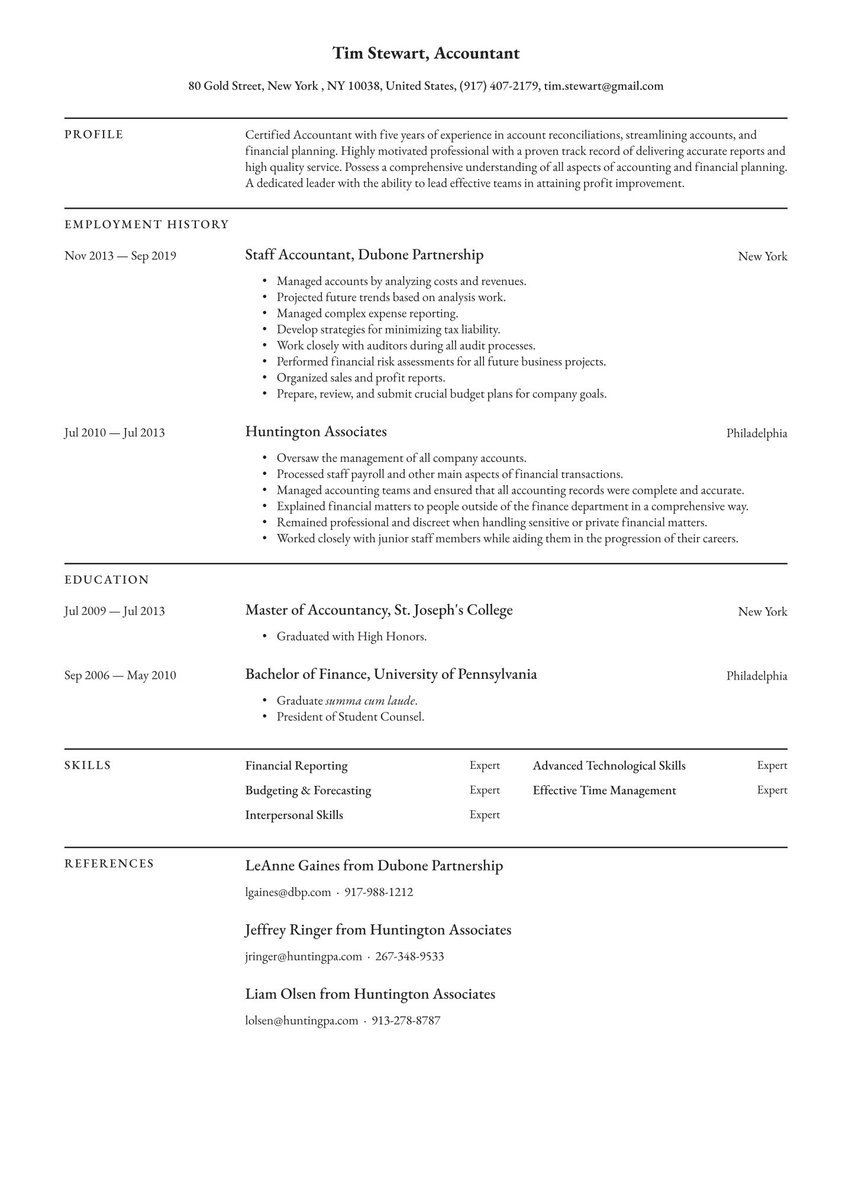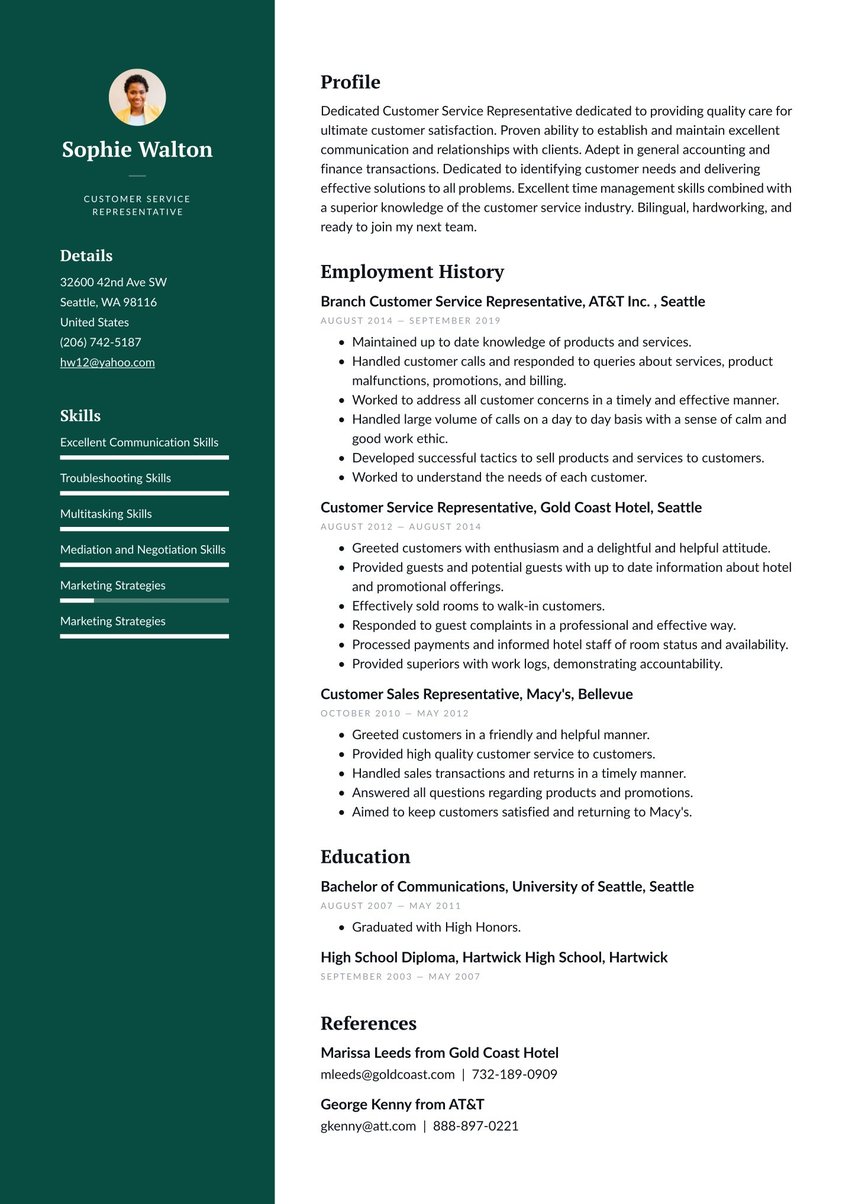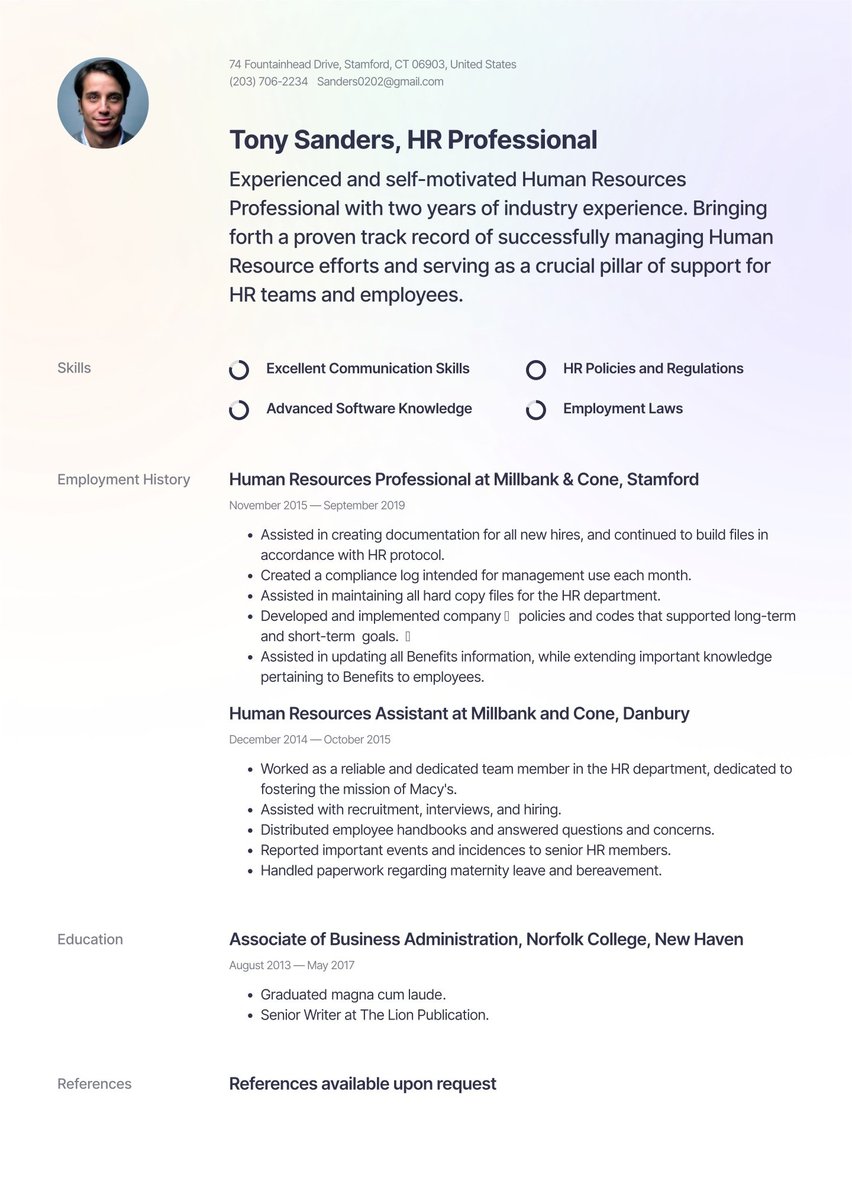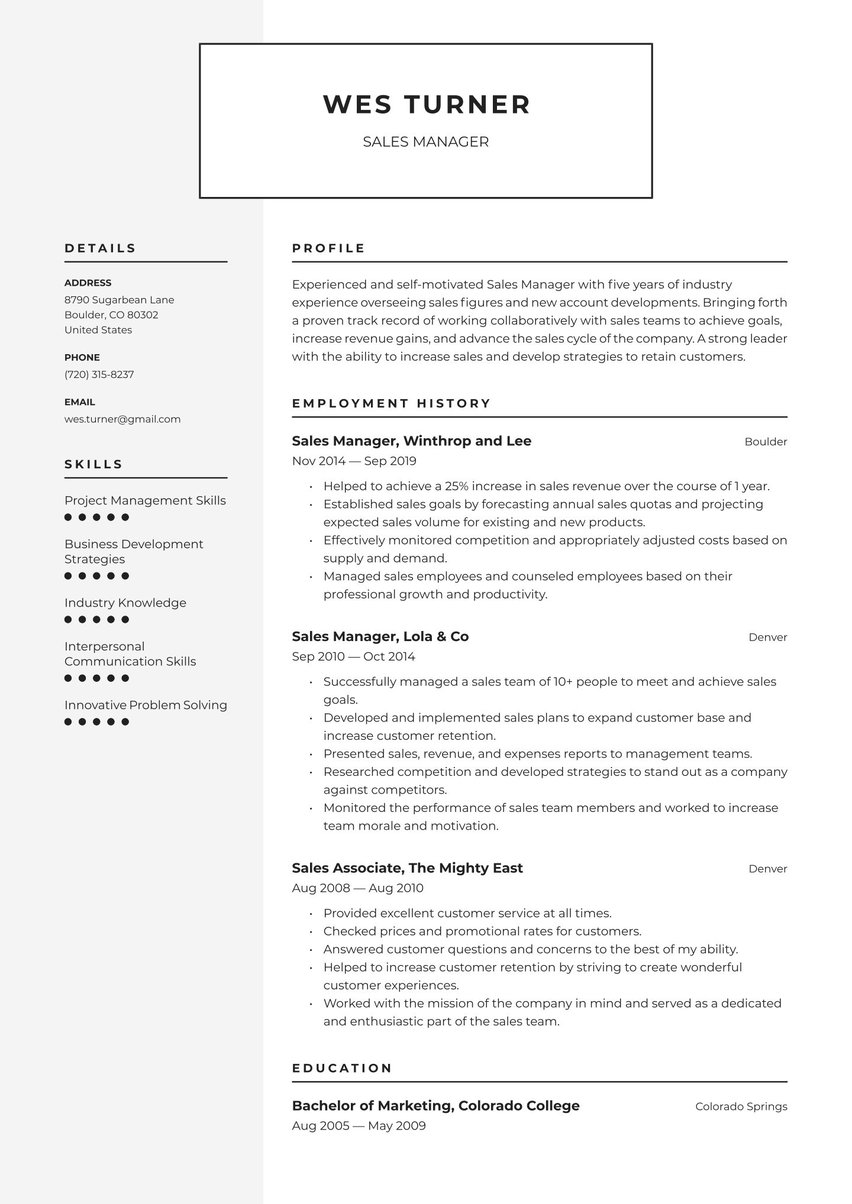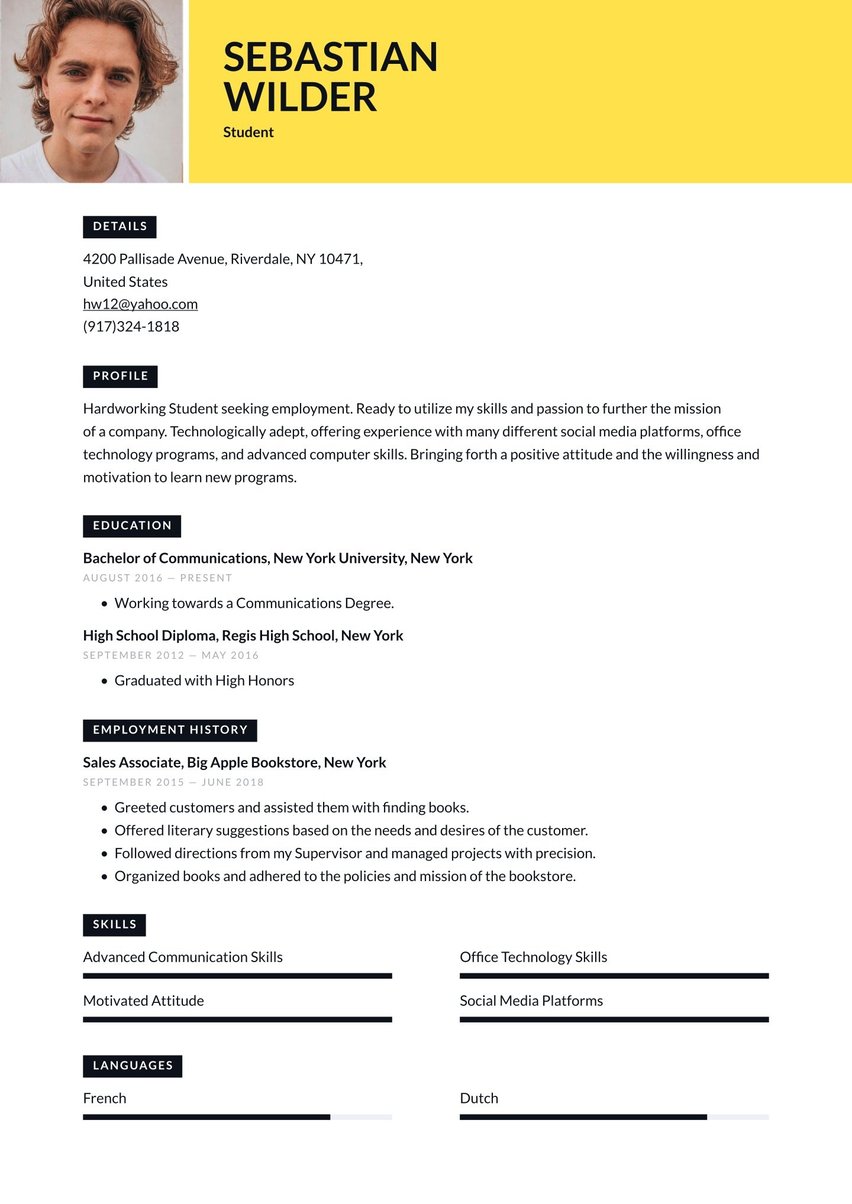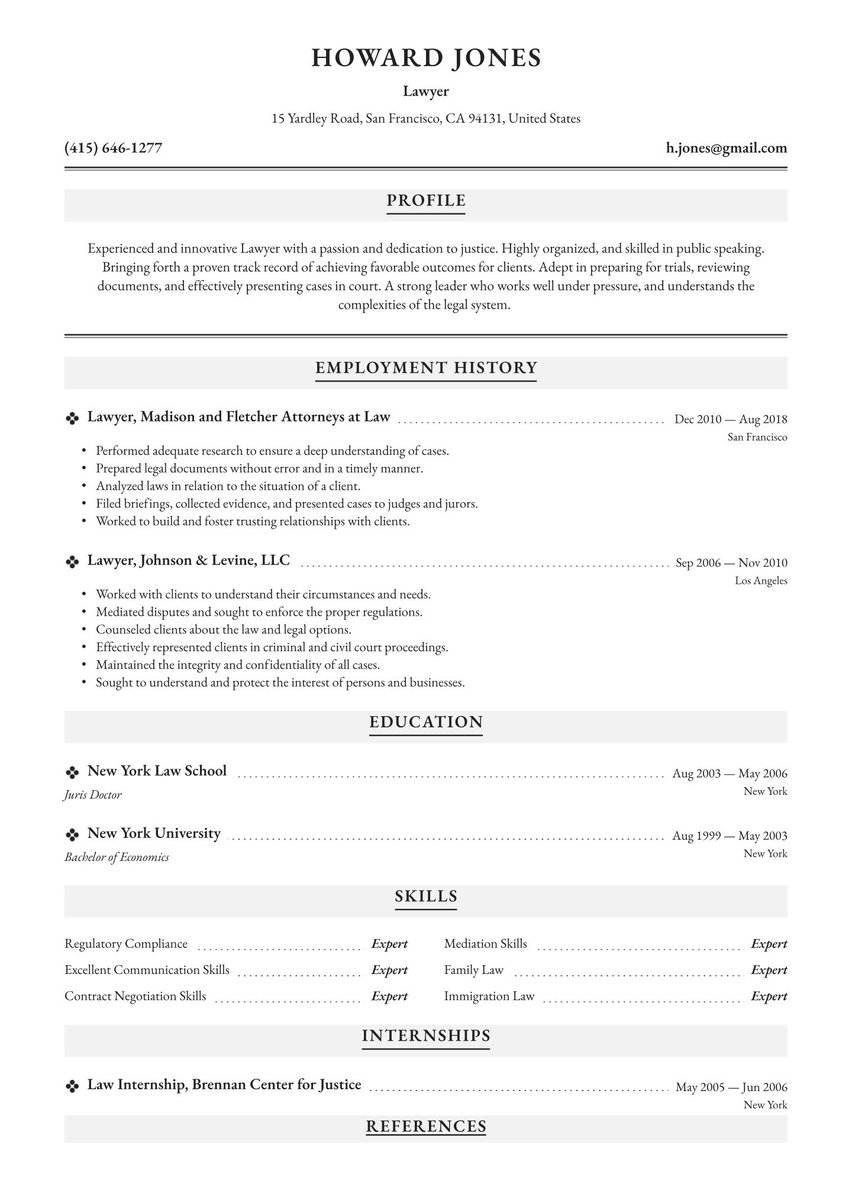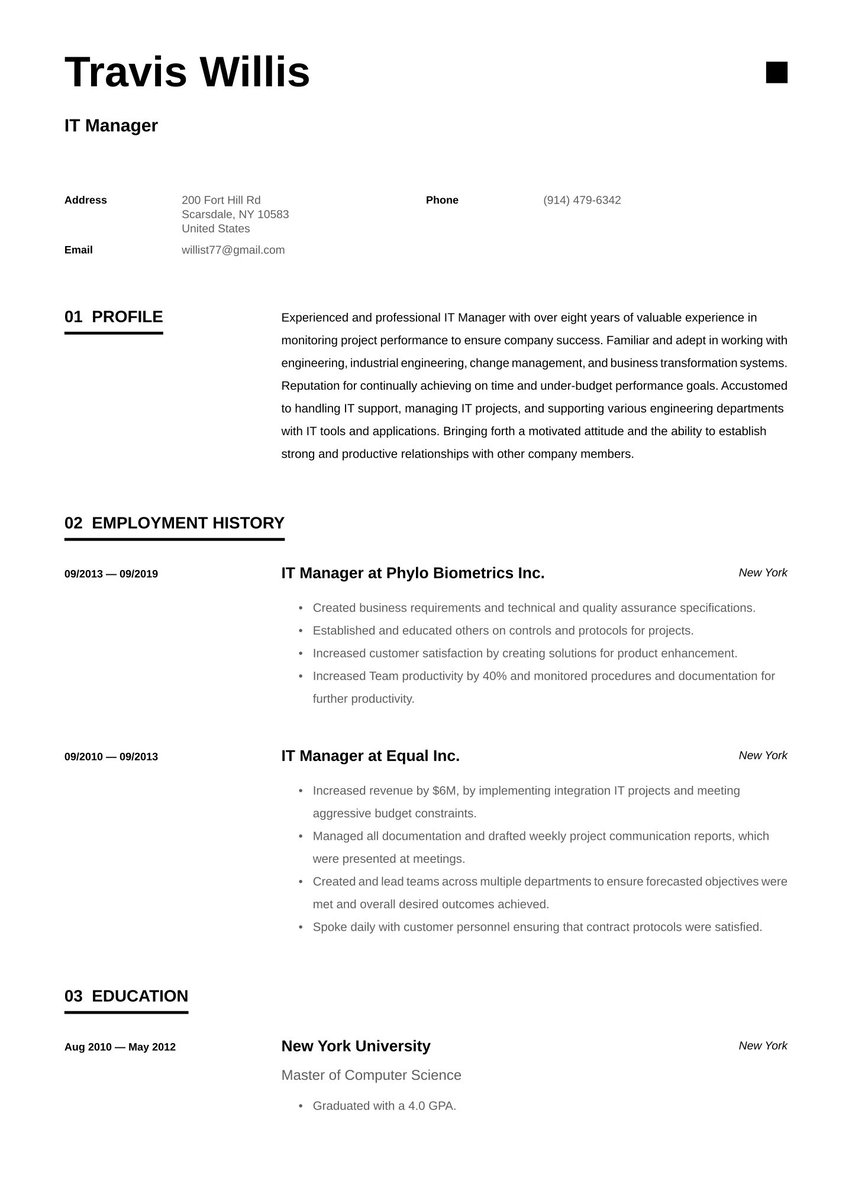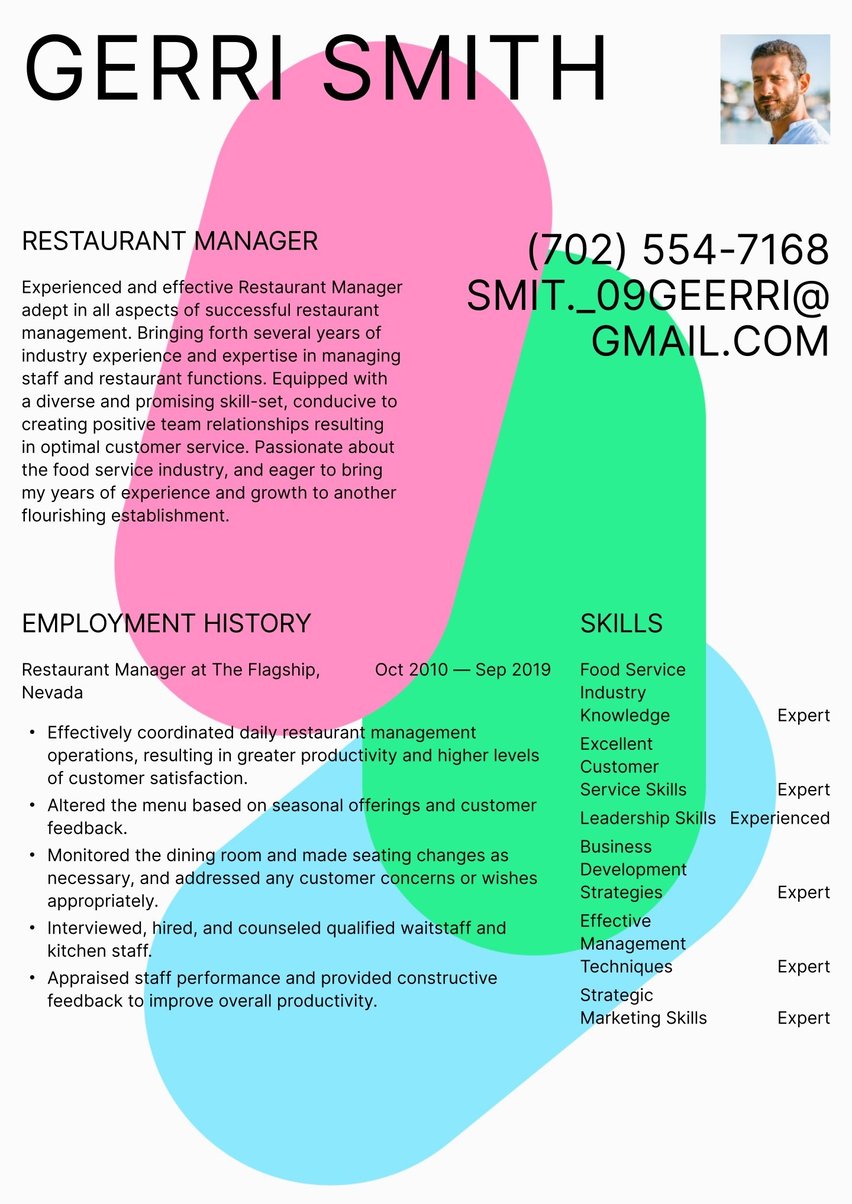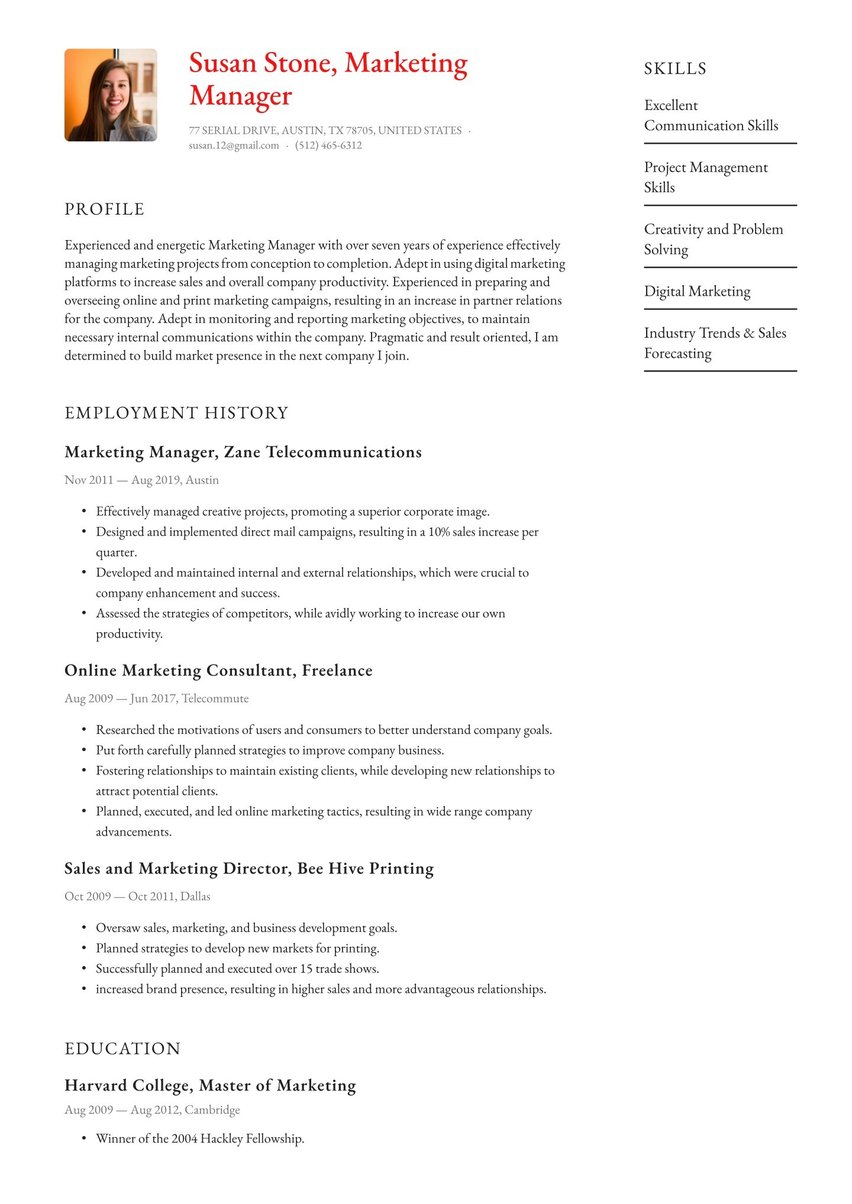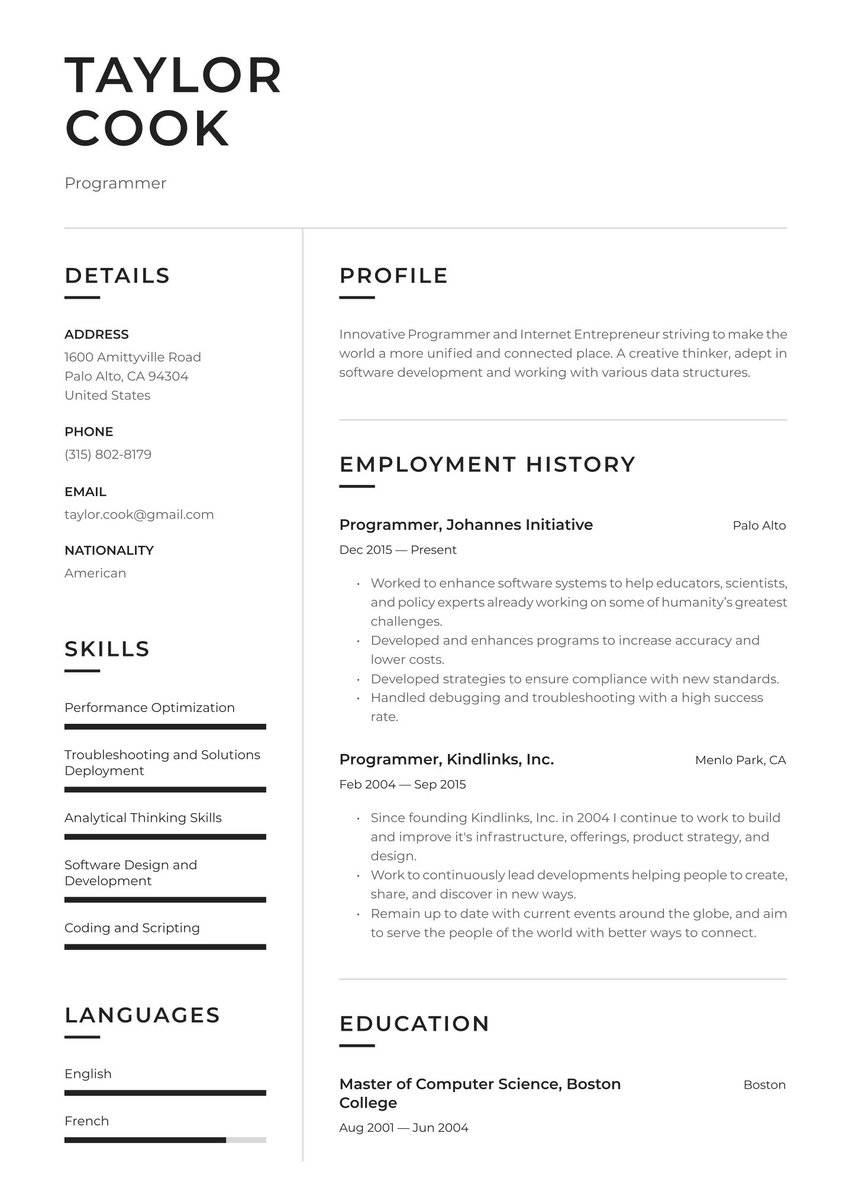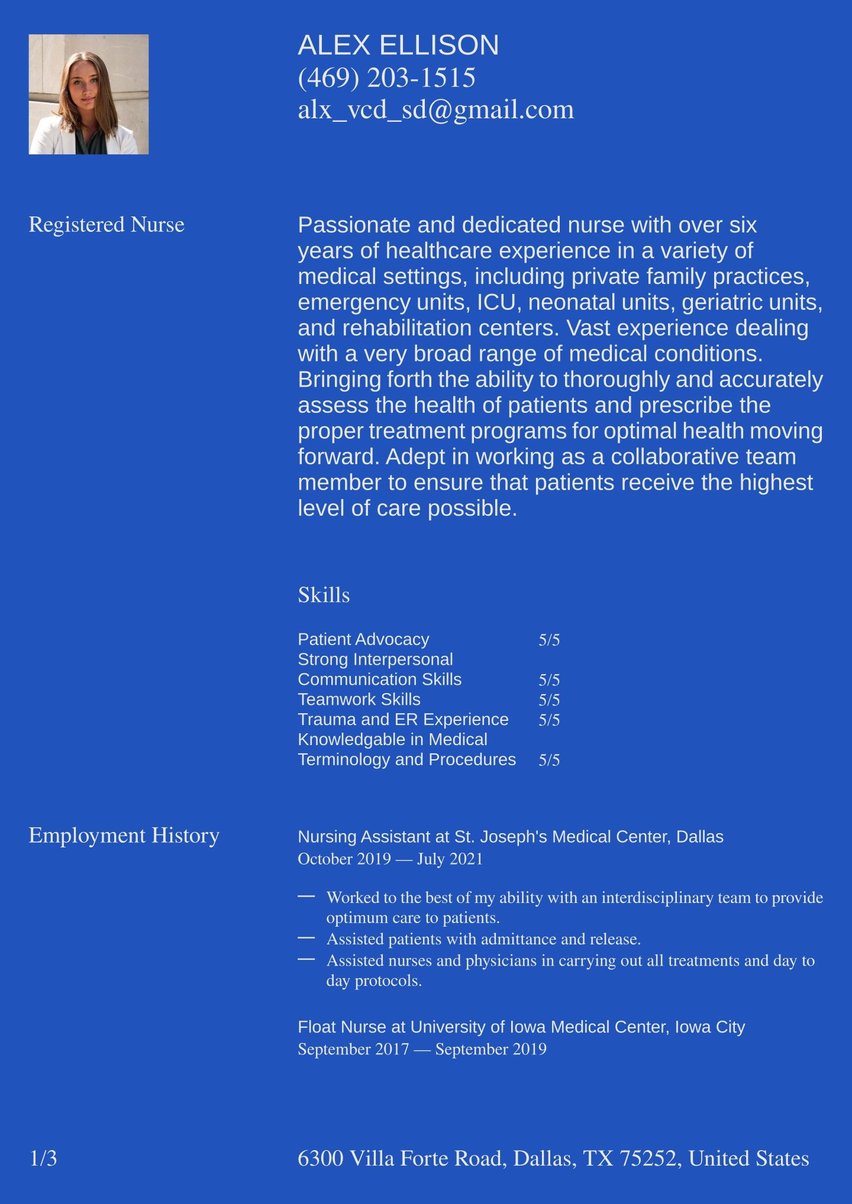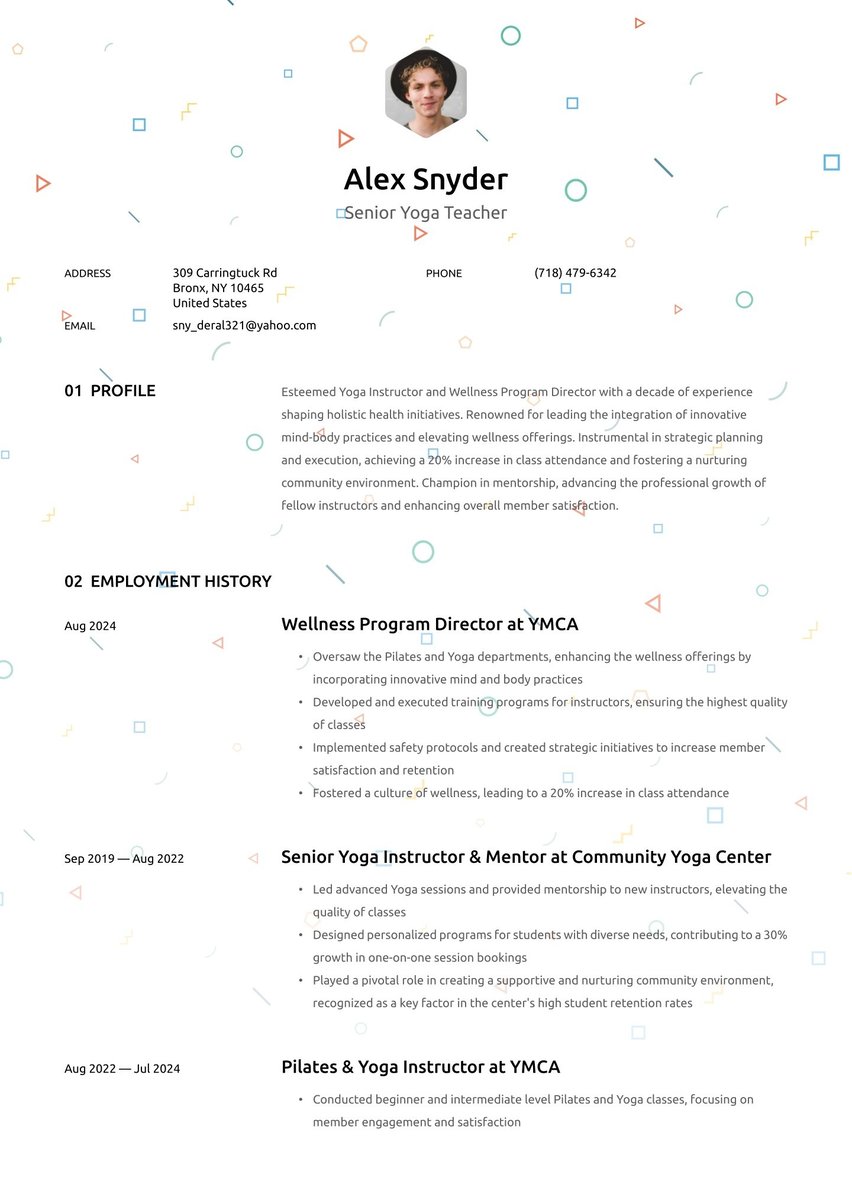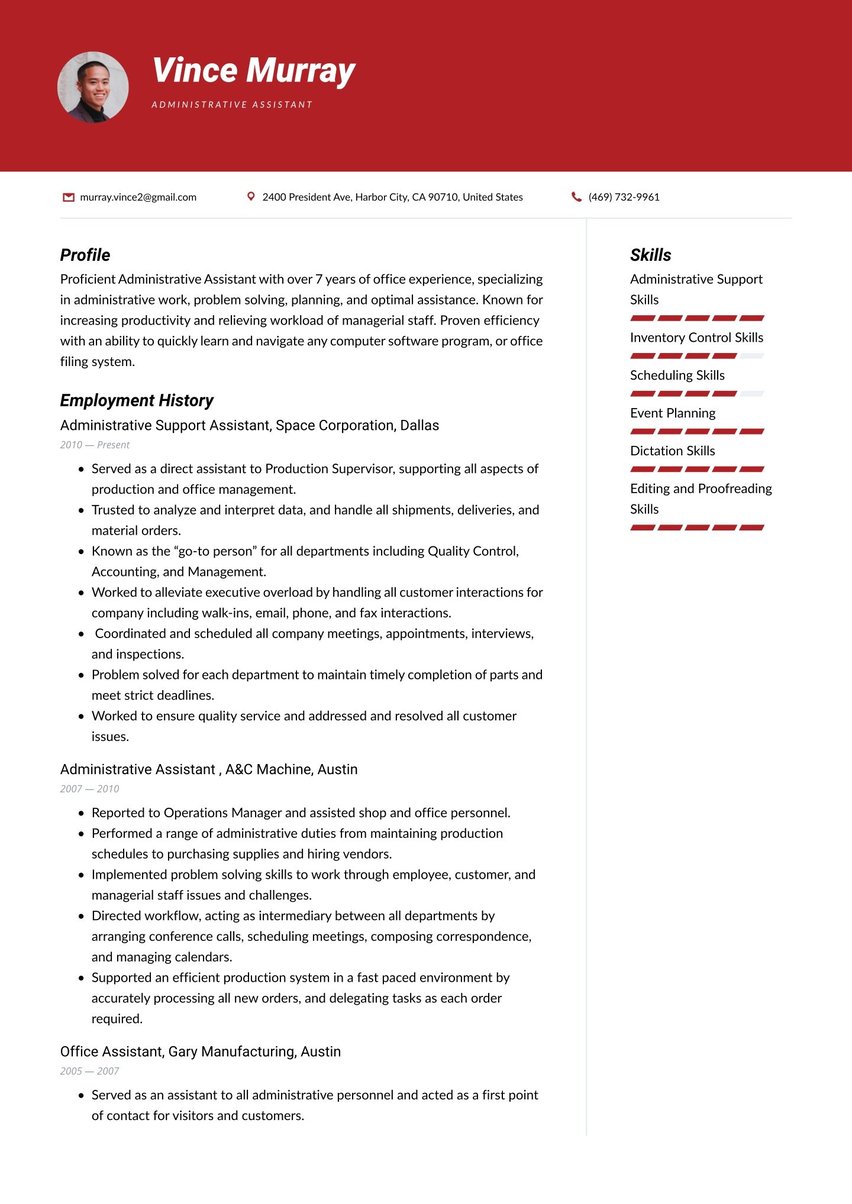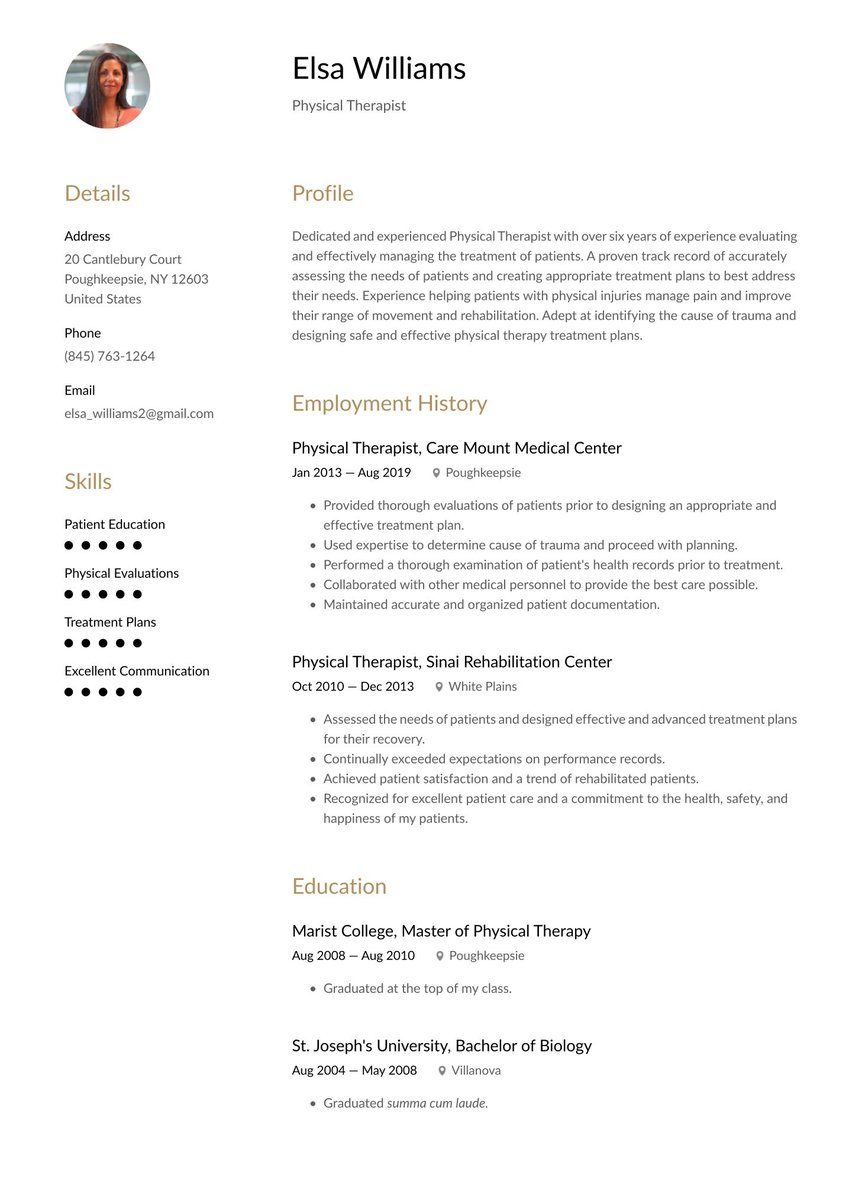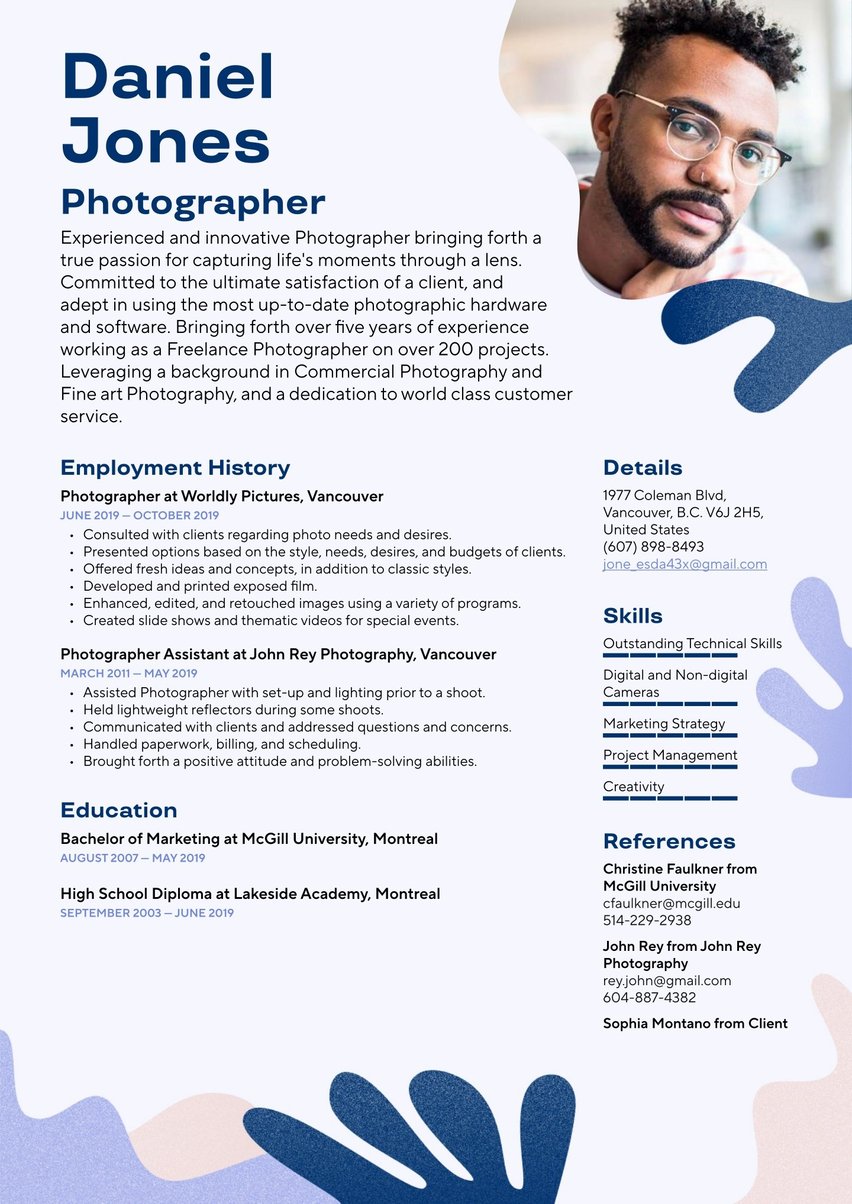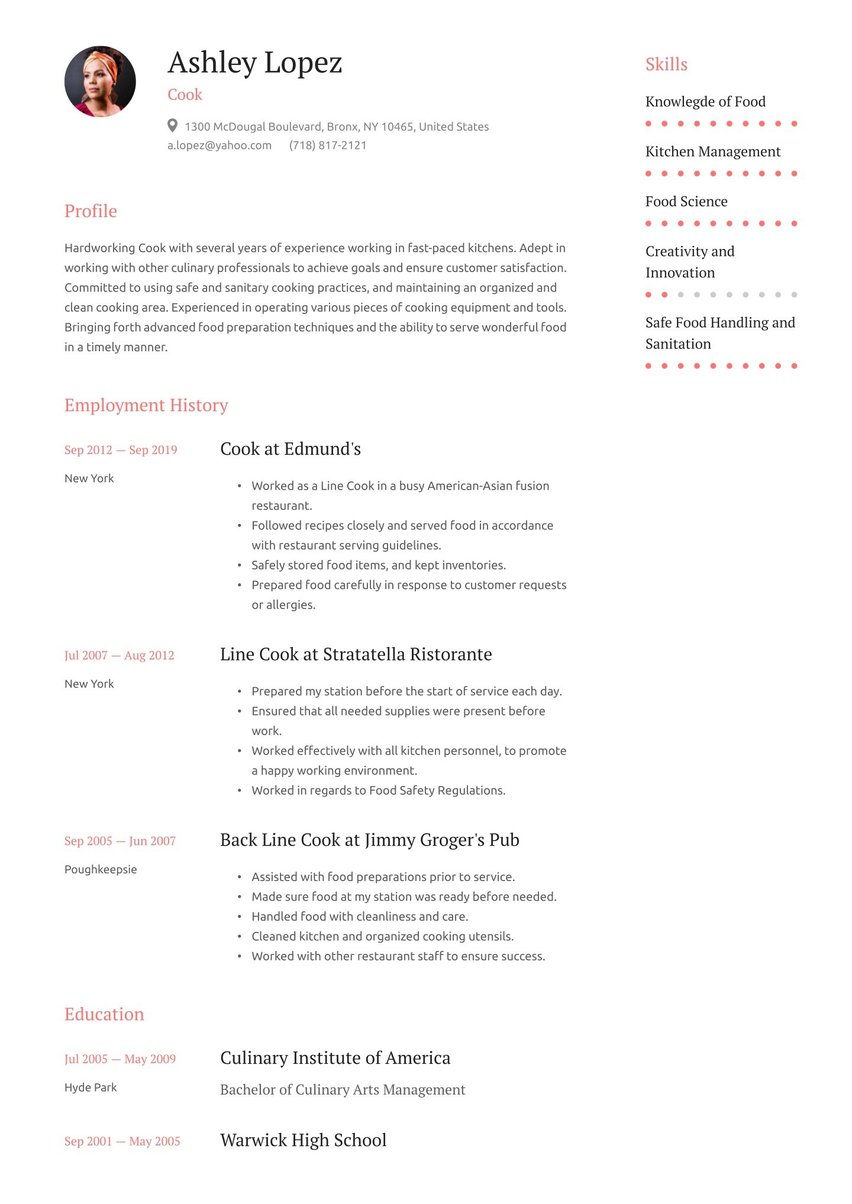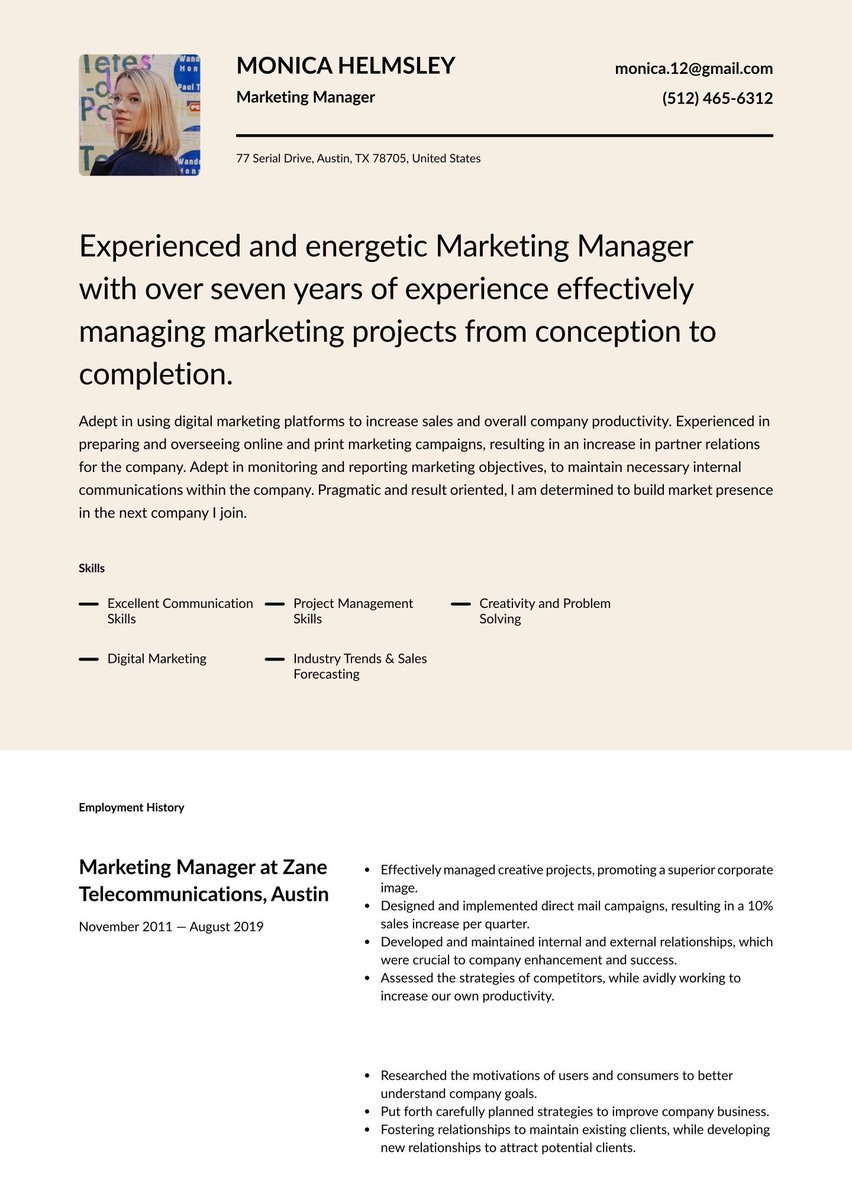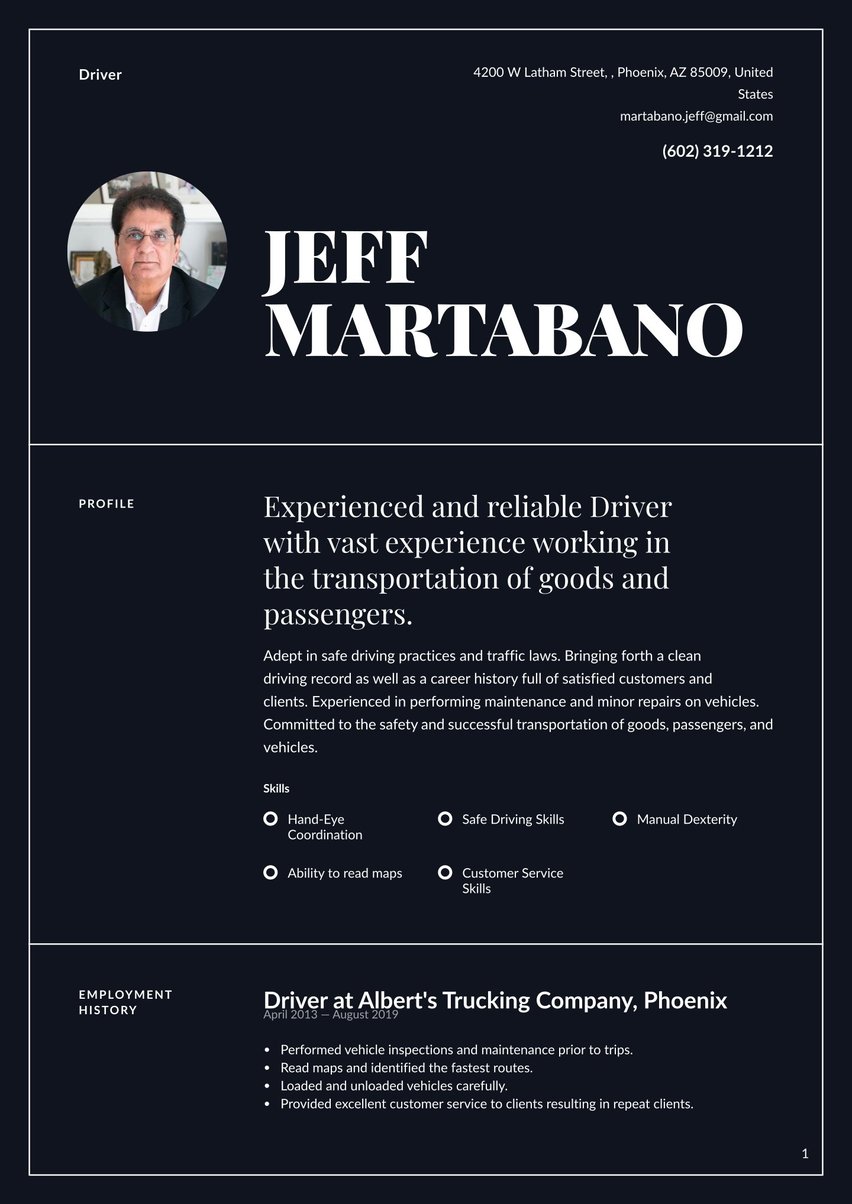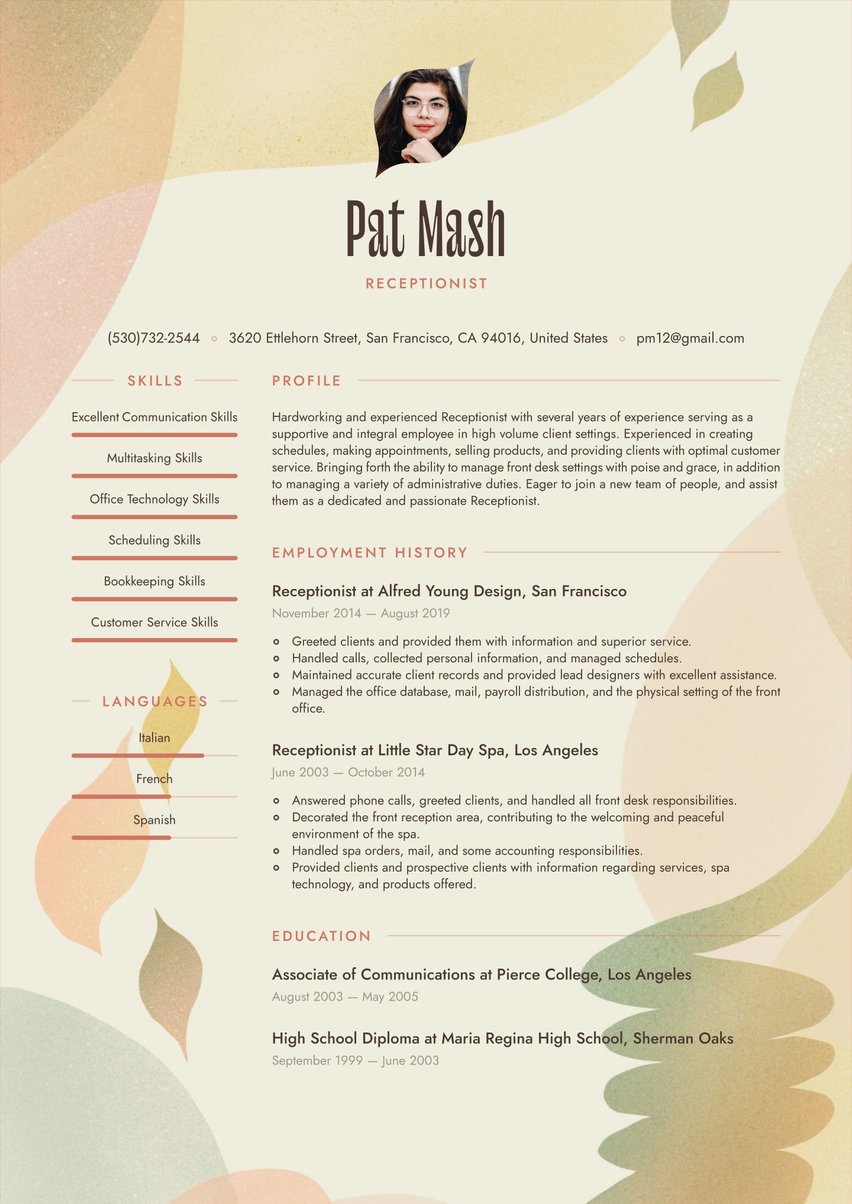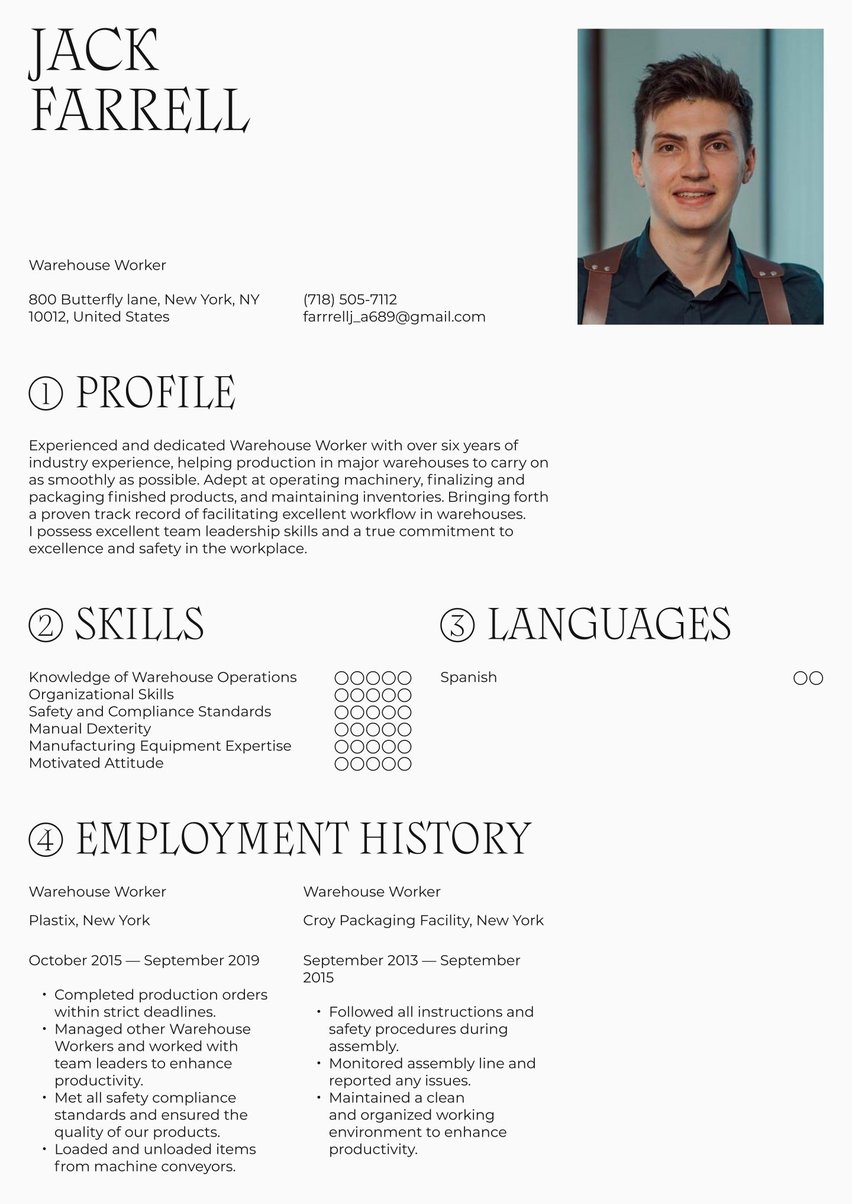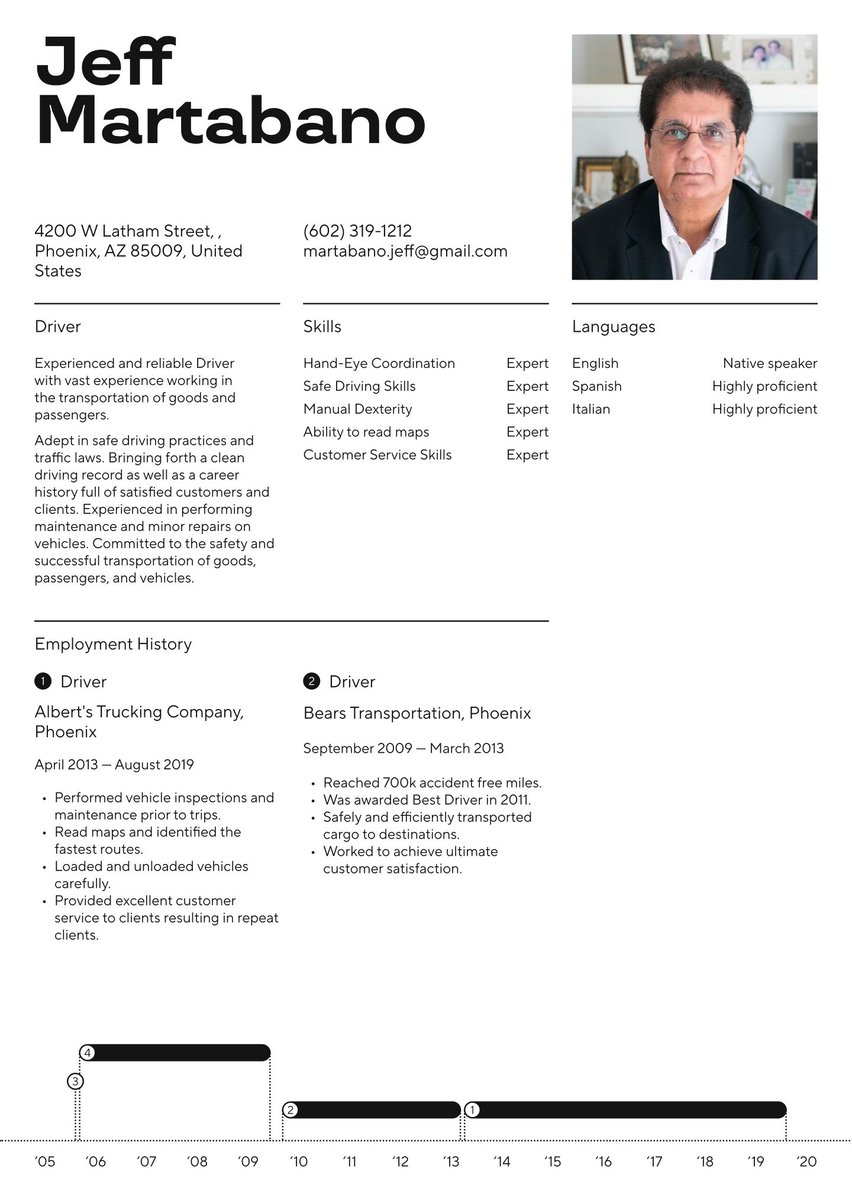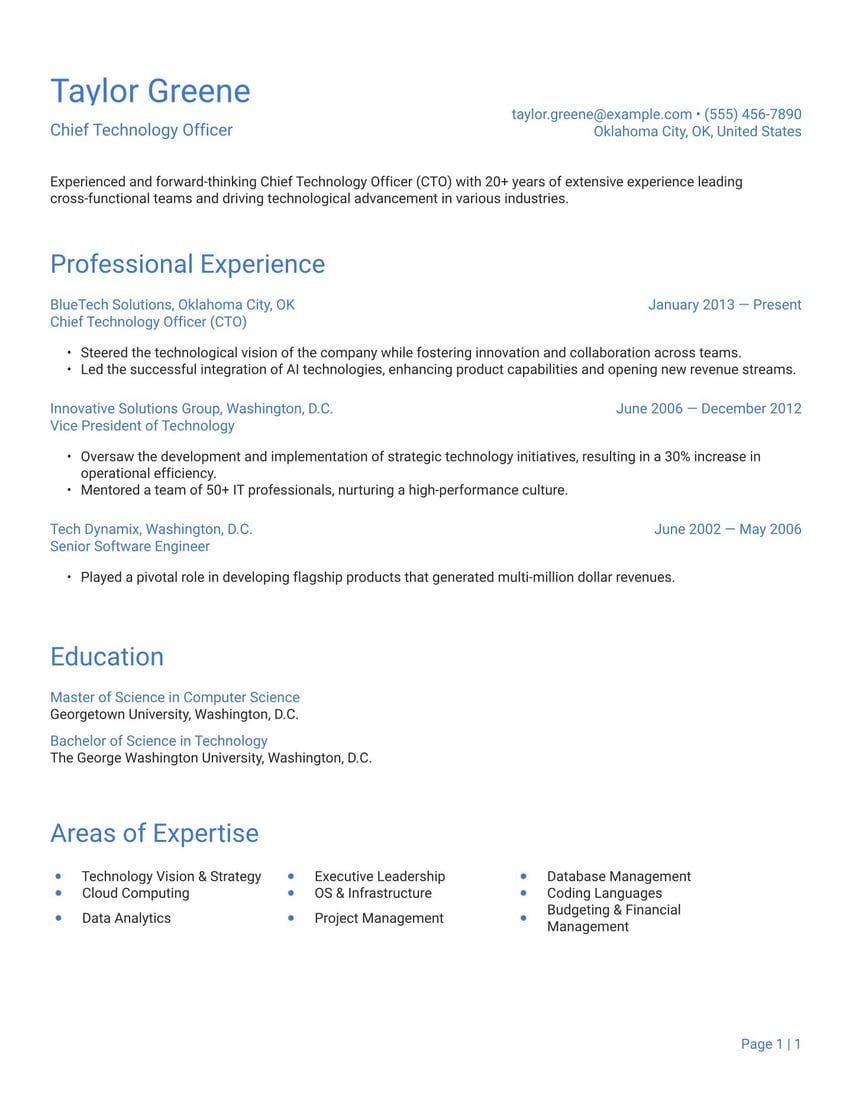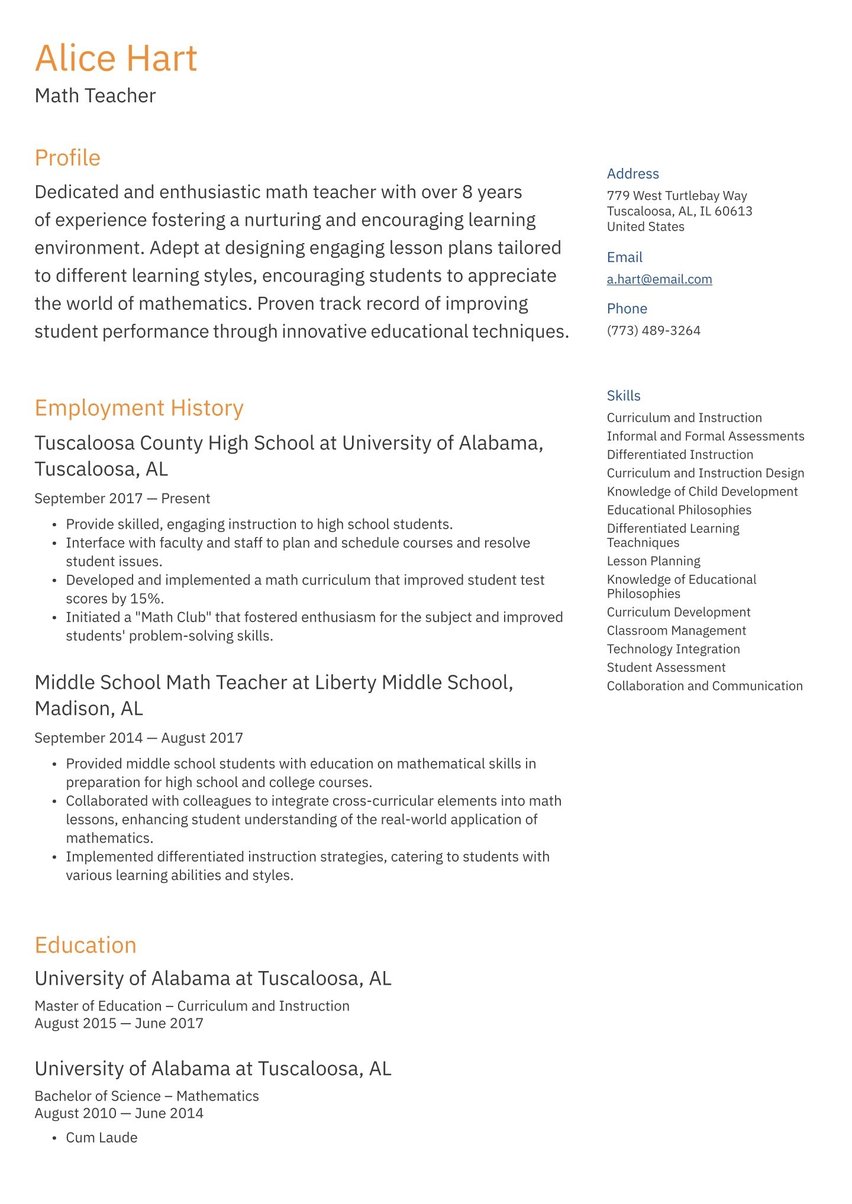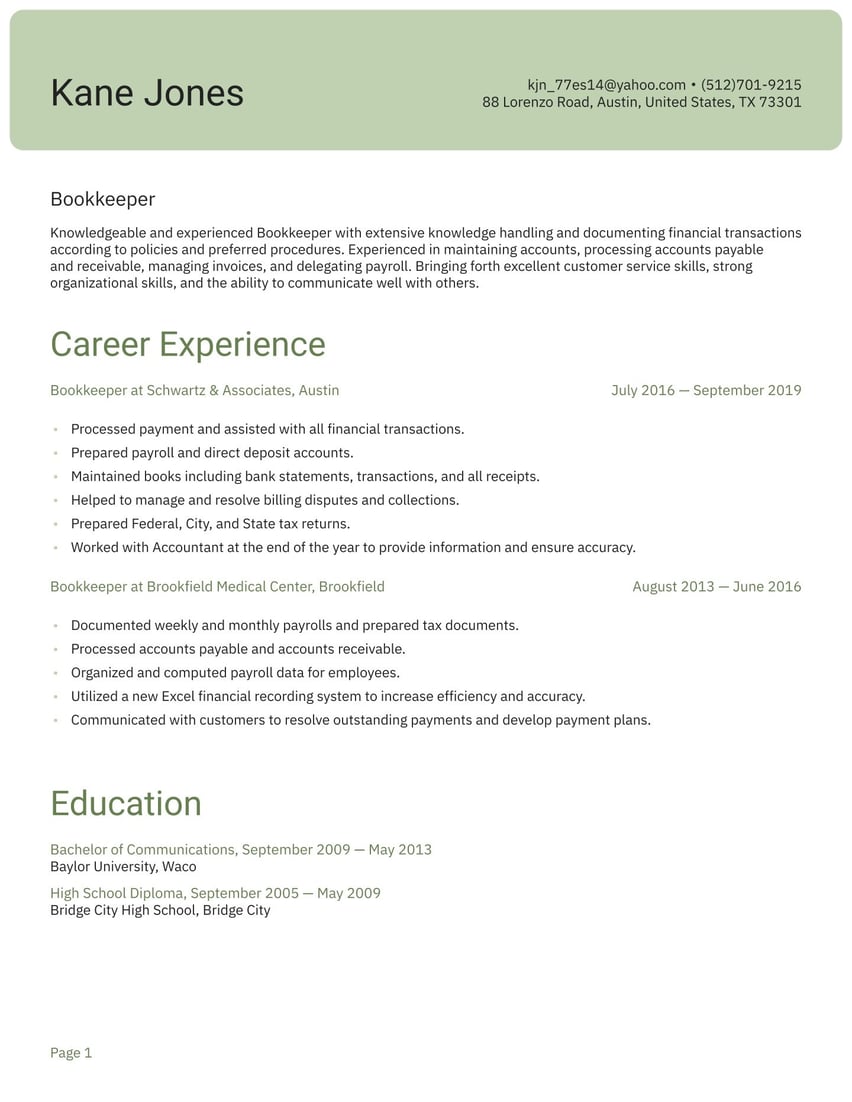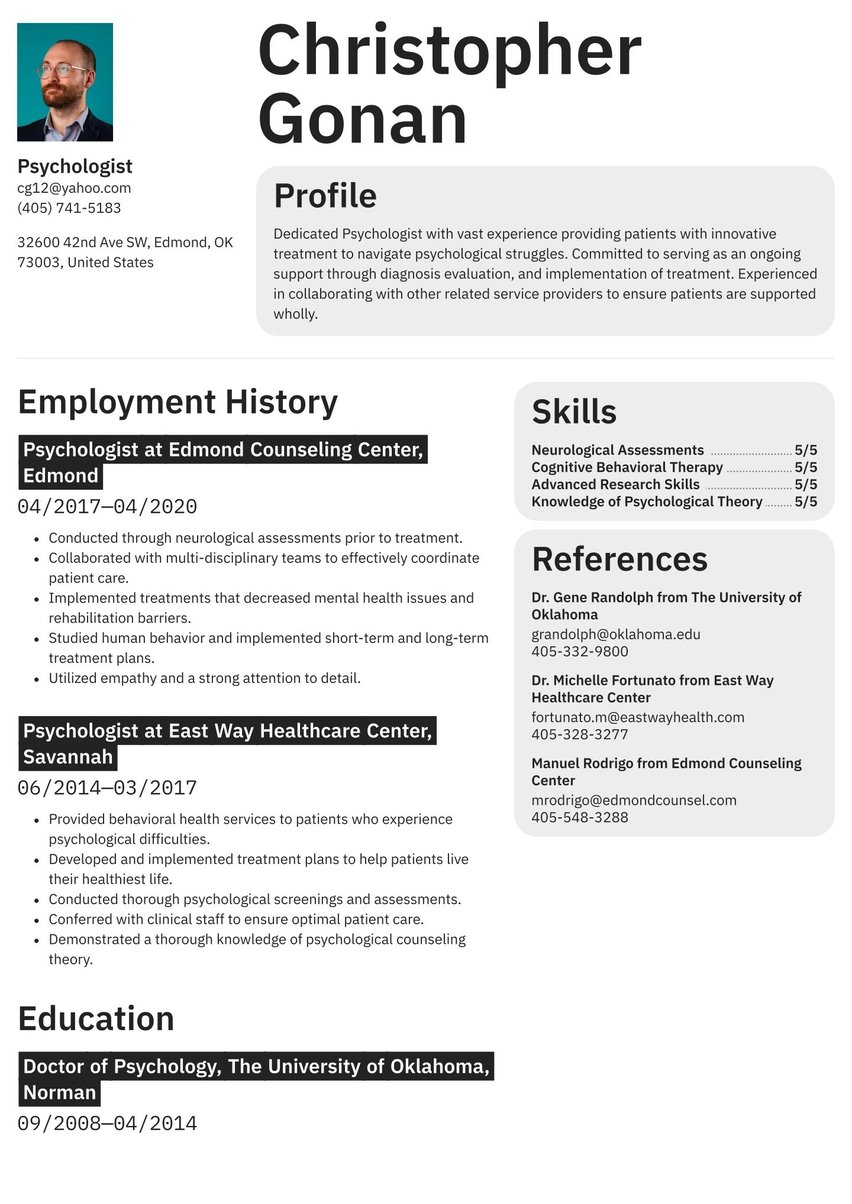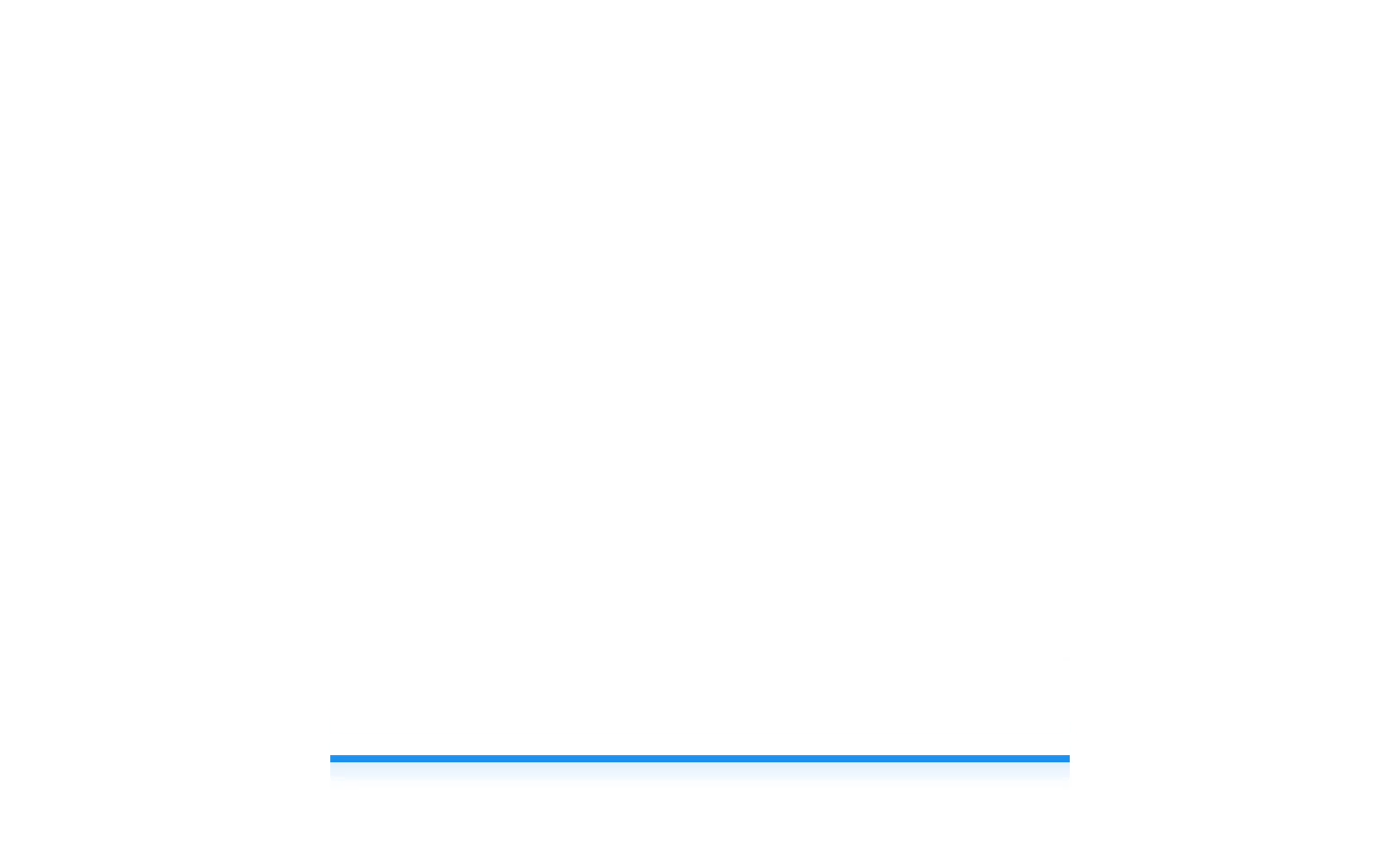Google tops the corporate charts on so many metrics, so its permanent place as one of Glassdoor's best places to work comes as no surprise. They receive more than 2 million applications a year and it is harder to get a job at Google than get into Harvard.
Google resume examples by experience level
Google touches more parts of our life than we realize, and the diversity of roles there is almost as broad as its diversity of thought. So, how do you create a Google resume to showcase your brand of thinking outside the box?
Resume guide for a Google resume
Given that the focus at Google is innovation, individual excellence is welcomed and rewarded as an integral part of the overall team effort and as such, there is no such thing as a typical “Google” employee.
They do value people with “T-shaped” experience – where they are deep in knowledge in a certain area with a broad understanding of many others. The recruiters at Google are used to looking beyond the basics of every application, but it is still up to each candidate to give them hints of what lies beneath. Google even has a fascinating guide to writing a resume.
A succinct resume that will distill the essence of your individuality is far from easy to achieve on one page. Google prefers the resume to be as brief and impactful as possible, so how do you go about creating your innovation highlights reel?
Our guides and resume examples cover over 500 professions, and it’s easier than ever to craft a resume using our resume builder.
This guide, along with our Google resume example, will cover the following:
- How to write a Google resume
- Choosing the right resume format for roles at Google
- How to add your contact information
- Using summaries
- Adding your relevant experience
- Listing education and relevant experience
- Picking the right resume design/layout
- What the job market looks like at Google and what salary you can expect

How to write a Google resume
As mentioned, there will be no unified Google resume as every applicant has their own secret sauce, but there are a number of common themes in every successful application. Google tends to look beyond traditional metrics, and this is where you get noticed (or get sent the dreaded rejection letter).
Your ability to learn on the job should feature strongly in your resume, pulling together strands of disparate information and coming to sometimes surprising conclusions. Every successful Google resume will include aspects of a journey of growth and discovery.
While the resume should be as individualistic as possible, any resume example should include these sections:
- The resume header
- The resume summary (aka profile or personal statement): this is your Google elevator pitch
- The employment history section, detailing the most relevant parts of your career history
- The resume skills section, focused on the unique differences you bring to the table
- The education section, which shows the foundation of your potential
To really make these sections pop, stick to this winning formula:
- Highlight accomplishments rather than responsibilities. The folks at Google are seeking exceptional candidates with a track record of success, not people who checked tasks off a list. Think about your unique value and how you’ve proven it in past roles.
- Adapt each version of the resume you submit. Google, like many companies, has specific requirements for each role, so in addition to making your resume Googley, you’ll want to tailor it for each job posting to show how you’re a fit. Every department at Google has a different feel to it, so make it as granular as possible.
- Use a resume template that’s polished and professional, but still well-designed enough to attract Google, a high-tech company.
- Google recruiters receive hundreds of thousands of applications, so don’t forget to optimize your resume with appropriate keywords so it won’t be filtered out by tired recruiters or by ATS screening software.
Here is Google’s resume advice on their careers page – in their own words:
- Align your skills and experience with the job description. Tie your work directly to the role qualifications (and don’t forget to include data).
- Be specific about projects you’ve worked on or managed. What was the outcome? How did you measure success? When in doubt, lean on the formula, “accomplished [X] as measured by [Y], by doing [Z].”
- If you've had a leadership role, tell us about it. How big was the team? What was the scope of your work?
- If you're a recent university graduate or have limited work experience, include school-related projects or coursework that demonstrate relevant skills and knowledge.
- Keep it short. We don’t have a length requirement, but concision and precision are key, so think twice before letting your resume move onto multiple pages and take careful aim with your information.
Choosing the right resume format for Google
It’s hard to deny that your work experience pedigree can heavily influence the hiring decision at such a prestigious company, so in most cases, the best resume format for Google will be reverse chronological, which will impress the hiring manager or recruiter with your most recent employers and projects.
On the other hand, a functional resume (which emphasizes the skills or projects instead of specific work history) can also be a viable pick. This format is great for niche specialists or heavily technical specialists. For example, if you’re an expert in AI/ML, it might make sense to expand on that skillset.
Most candidates go with the reverse chronological format as it’s the most common. It’s likely that you’ve worked at a similar company, so why not put your most recent employment front and center?
Another formatting consideration when writing a Google resume is making sure it's clear and easy to read. Hiring managers won’t be impressed by fancy fonts or colors — instead, they will look past the superficial and focus on what you have written.
Our modern resume templates will suit any technology professional and may be the exact sleek design you need to fit in with a design-conscious tech crowd. Take a look at our many resume examples to see the different formats in use.
Optimize for the ATS
An applicant tracking system (ATS) is a system used by companies to track and manage job applications. Some advanced ATSs may rank or filter resumes based on keywords and how well they match the job posting.
For instance, if a job posting at Google requires 10 years of experience, a bachelor’s degree, and expertise in software development, you could create a resume profile summary that reads:
“Software development expert with a bachelor’s degree in computer science and 10+ years of experience at large tech companies.”
Include your contact information
It’s not easy to get a call back from Google, so you need to make sure they know exactly where and how to reach you. That’s where your resume header comes in.
Here, the most important thing is to present your contact information simply and professionally.
Include the following:
- Full name & title. List your first and last name and the title of the role you are pursuing. Use the specific title, not just “Google.”
- Professional email address. Use a clean format like [email protected]. Don’t use a quirky, unprofessional email address.
- Phone number. List a number where you can easily be contacted. Make sure you have a professional greeting set up and an inbox that isn’t full.
- Location. List only your city and state. Don’t list your street address or zip code. Most of Google’s roles are hybrid and require multiple days per week in the office, so if you’re willing to or planning to relocate, note that here.
- LinkedIn. If your LinkedIn profile is active, relevant, and shows off your expertise and experience, you can include it here.
Don’t include:
- Date of birth: This isn’t necessary. At best, it’s useless, and at worst, it could lead to age discrimination.
- Personal details: Avoid including your marital status, social security number, passport number, etc.
Ada Smith
Looking for a Google Job
4577 Engleside Road
Los Angeles, CA 90012
United States
(206) 444-8211
Make use of a summary
While we’ll dive deeper into the writing of your summary below, first remember one important rule: your summary needs to showcase your “Googleyness” in a couple of short sentences.
Yes, that is a real word, at least according to Google. Whether your Google resume is highlighting your passion, drive, entrepreneurship, creativity, or grit, before you start your journey towards a career at Google, you should have a serious think about what “Googleyness” means. Build your resume around it, starting with the elevator pitch of your summary section.
The summary lets you reach the hiring manager on a very personal level. In 2-4 sentences, display how you can help them and their team to elevate their performance. What is your go-to example that highlights your persistence and ability to bring others along? What mix of skills do you possess that others may struggle to match? Use action verbs in the simple past or present tense and include quantifiable achievements where possible.
Need inspiration for your summary? Check out our related technical resumes:
- Systems Analyst resume sample
- Technical Project Manager resume sample
- Computer Science resume sample
- Network Engineer resume sample
- IT Director resume sample
- Software Engineer resume sample
- Film and Video Editor resume sample
- Motion Graphics Artists resume sample
- Network Systems Analyst resume sample
- 3D Animator resume sample
- Software Developer resume sample
- Web Developer resume sample
- Programmer resume sample
- Data Scientist resume sample
- IT manager resume sample
- Data Analyst resume sample
- IT Project manager resume sample
You can find adaptable Google resume example summaries below:
Eager and driven recent graduate in computer science. Strong foundation of technical knowledge including C++, Java, and Python. Prior internship experience at Microsoft and Amazon.
Software developer with over 5 years of experience designing and developing software products for consumers. Expertise in C++, Java, and Python, as well as 2 years of experience in AI/ML. Known for crafting clean, bug-free code and offering guidance and mentorship to colleagues.
Seasoned software leader with 10+ years of experience leading large-scale software projects focusing on consumer products, AI/ML, and more. Fluent in numerous coding languages including C++, Java, and Python. Adept at coaching and mentoring others, with 3 years of team management experience and many more years of peer mentorship.
Find out all the information that you can online. Google them. Ahem, sorry….
To start with, check out Google’s suggested reading. Look at the Google company and our teams pages. Sit down with a coffee in front of their YouTube channel. Subscribe to the blog and understand how Google cares for their Googlers. You will only understand whether you fit in (you might not) if you do your research and be honest with yourself. Otherwise, the application might simply be a gigantic waste of time (and will take a lot of time).
Outline your Google-related work experience
There is no company in the world like Google, but that doesn’t mean much if your employment history isn’t worthy of Google. Be deliberate with the stories you tell, quantify everything with numbers and context, and put yourself in the place of your future boss and colleagues when you read it back. Your Google resume should read like you already have what it takes to smash the role in question.
If you’re using a reverse chronological format, you’ll list your current (or most recent) job at the top of this section and work your way backwards. Only go back the last 10-15 years to keep it as relevant as possible, and stick to experience that is directly related to the role.
Under each role, detail your contributions and accomplishments using short bullet point statements. You can avoid pronouns like “I” and “my.” As in your summary, you’ll want to use action verbs here to paint the picture. Don’t just list job duties. Instead, demonstrate tangible and quantifiable outcomes as much as possible.
For example, a basic resume may include statements like these:
- "Led projects with a team.”
- "Navigated large tech company.”
- "Drove solutions to complex problems.”
While these are certainly great experiences to have, they don’t prove to Google that you’re the ideal next hire. Replace them with results-based points that showcase the results you achieved—impacts on the team, the company, or the bottom line, for example.
Doing this leads to new bullet points, like these:
- "Led end-to-end technical projects with teams of 5-10, achieving 99% on-time delivery.”
- “Navigated and developed cross-functional relationships with stakeholders, peers, and executive leadership to achieve project targets and deliverables.”
- “Spearheaded solutions to complex challenges, including development of a system to improve accuracy of metrics tracking by 75%.”
Here are 10 different scenarios to consider when drafting your resume accomplishments
- Increased sales or profit margins
- Financial cost savings / improved bottom line
- Improved productivity in terms of time spent
- Solutions that you discovered for unsolved problems
- Innovations or ideas that have led to a change
- Processes improved and procedures developed
- Awards that you have won (with a reason why)
- Promotion to a different role in the company
- Impact on the development of those around you
- Offering outstanding service to customers or clients
Take a look at the Google employment history resume sample below:
Project Manager at Verizon Communications, Newbury Park
June 2017 - Present
- Brought forth a strong knowledge of user experience data.
- Continually identified and delivered scalable solutions.
- Served as an enthusiastic cross-functional partner.
- Worked with stakeholders to plan requirements.
- Used technical judgment to drive project delivery.
- Coordinated with stakeholders to manage and control project issues.
Assistant Project Manager at Pepsi Beverages Company, San Fernando
November 2014 - May 2017
- Assisted in the management of technical vendors.
- Lead quarterly business reviews.
- Planned requirements with internal customers.
- Managed project schedules and communicated risks to project stakeholders.
- Coordinated with global delivery teams.
- Developed reports to track schedule, budgets, risk, and overall project progress.
How to write a Google resume with no experience
While it’s likely some measure of experience will be required for a job at Google, it’s still possible to craft a Google resume even if you don’t have direct experience on your resume.
Instead of exact experience, you’ll want to focus on your transferable skills and your passion for the tech industry (Google specifically). That means focusing on your educational background in a related technical field, as well as sharing any relevant certifications or courses you’ve undergone.
Google seeks out innovation and leadership, so if you have transferable leadership experience or proof of creativity and drive, even from volunteer experience, include that here. Google also wants folks who solve for the customers’ needs, so detail your experience providing excellent service to customers as well. And, of course, don’t forget to highlight your communication abilities.
In the tech world, side projects can help you get a leg up on the competition. If you’ve developed mobile apps or other software, it can show the Google hiring managers that you’re passionate about the industry and take the initiative.
Include the relevant key skills that make you a great fit for Google
The job descriptions at Google are some of the best in the business. The only problem is that since every candidate will have access to them, it isn’t enough to parrot the job description. You need to look deeper to see the most important skills to display on your resume for Google.
This means you should include both hard and soft skills. Hard skills are those that are demonstrable and objective, like fluency in a specific coding language or project management methodology. Soft skills, on the other hand, are related to your work with others, or your intrinsic qualities like drive, ambition, and innovation.
Don’t just take the job posting at face value; instead, consider what the true meaning is behind each skill they ask for. For example, it might state that you need UI design experience, but how does UI design differ at Google? What projects will you be working on? How will you fit into the UI team? Which specific skills make a Google UI designer awesome? Answer those questions, and you will have one foot in the interview door.
Here are the top tech skills (and resume keywords) for some common roles:
- Designers: UI design, graphic design, web design, photoshop, information architecture
- Software engineers: C++, C, C#, Java, Python, Javascript, Agile methodologies, SQL
- Product managers: Project manager, leadership, customer, cloud computing, strategy
- Data scientists: Machine learning, SQL, Python, data mining, project management
Our resume builder offers several pre-written skills to choose from, along with proficiency ranges you can set. You can also write in your own skills.
Here’s what the skills box looks like in our Google resume template.
- Adaptability
- Effective Time Management
- Interpersonal Skills
- Dedicated team player
- Strategic Planning
While this section is important, it’s not the only place to show your skill set. Instead, try weaving them throughout your resume and demonstrating them in action, especially in the summary and work history sections.
For instance, you can highlight your:
- Innovation skills by displaying times you thought outside of the box, presented a new idea, or spearheaded a new project
- Technical expertise by showcasing your knowledge of various coding languages, past products you’ve developed, or up-to-date understanding of modern technologies like AI
- Leadership skills by demonstrating how you’ve led teams of direct reports (or project teams) to success, the size of teams you’ve led, or the success of people you’ve mentored.
Detail your education & relevant certifications
When you are competing with countless other amazing job seekers for a role at Google, you need to make sure that your education section is on par with the best.
Of course, include your formal degrees; if you have a college degree or higher, you don’t need to include high school. Then, include all further education and additional qualifications you have.
Google places a great importance on the development of their people, so showing that you have an appetite for learning is a good sign. Don't be scared to take extra space if your list of certifications and education is particularly long - it is that sort of appetite for development that will demonstrate your passion.
Consider the following:
- Training and certifications. Certificates, courses, workshops, or training sessions that have helped you gain technical skills or leadership expertise.
- Internships. If you interned at other large tech companies, like Microsoft or Amazon, it shows your talent and drive.
- Professional development. Memberships in industry groups like Women in Tech or even experience with Google’s own Google Developer Groups is well worth including.
Bachelor of Arts, Seattle Central College, Seattle
September 2010 - May 2014
High School Diploma, Ballard High School, Ballard
September 2006 - June 2010
Pick the right resume layout and design for a Google resume
Your Google resume format should be crafted with the same eye for user experience as Google’s own products. That means ensuring it’s simple, pleasant, and functional.
A resume for Google should grab the hiring manager’s attention and display your qualifications for the role without distracting the reader with too many graphics or colors. Think clean, user-friendly, and streamlined.
A well-designed resume includes a simple, modern font and limited color. Avoid images or tables, as they can be cluttered and confusing.
Although nothing about getting hired by Google is easy, we can make it simpler. Our field-tested resume templates handle the most arduous design and formatting tasks for you, letting you focus on selling yourself as the newest Noogler.
Google text-only resume example
Profile
Dynamic Project Manager with vast experience in vendor management, customer support, and customer experience optimization. Adept in providing helpful data analysis, troubleshooting, and cross-functional company support. A versatile team player with a passion for learning and growing within an organization.
Employment history
Project Manager at Verizon Communications, Newbury Park
June 2017 - Present
- Brought forth a strong knowledge of user experience data.
- Continually identified and delivered scalable solutions.
- Served as an enthusiastic cross-functional partner.
- Worked with stakeholders to plan requirements.
- Used technical judgment to drive project delivery.
- Coordinated with stakeholders to manage and control project issues.
Assistant Project Manager at Pepsi Beverages Company, San Fernando
November 2014 - May 2017
- Assisted in the management of technical vendors.
- Lead quarterly business reviews.
- Planned requirements with internal customers.
- Managed project schedules and communicated risks to project stakeholders.
- Coordinated with global delivery teams.
- Developed reports to track schedule, budgets, risk, and overall project progress.
Skills
- Adaptability
- Effective Time Management
- Interpersonal Skills
- Dedicated team player
- Strategic Planning
Education
Bachelor of Arts, Seattle Central College, Seattle
September 2010 - May 2014
High School Diploma, Ballard High School, Ballard
September 2006 - June 2010
Google job market and outlook
While Google hires for roles in every conceivable function, the most common roles remain technology- or design-based.
Here are a few examples:
- Engineering: Technical roles at Google include software engineering, STA engineering, application development, product management, etc.
- Business: Non-technical jobs at Google include quantitative business analysis, business operations management, sales strategy, etc.
- Design: You can also apply for roles such as UI/ UX designer, UX writer, visual designer, UX researcher, etc.
The tech industry has experienced a lot of change in the past few years, with many large organizations — including Google — undergoing layoffs. At the end of 2023, Google stated that they would be reducing hiring over “the next several quarters.” That means it’s more competitive than ever to land a job at Google, but as tech continues to grow and change, there are still opportunities available.
What type of salary you can expect at Google
Google is well-known as a high-paying company, but the exact salary one earns will depend on their role and level. Many salaried roles at Google include equity (stock options) as well as potential bonuses.
According to Levels.fyi, salaries at Google range “from $98,490 in total compensation per year for a Copywriter at the low-end to $2,595,038 for a Software Engineer at the high-end.” Per Comparably, the average Google salary is $133,065 per year. They also note that “half of Google salaries are above $135,386.”
Key takeaways for building a Google resume
Working at Google is a goal for many professionals, and it’s certainly well-known as one of the world’s best places to work. That means, however, that it’s not easy to get a foot in the door. Your Google resume must be well-designed, compelling, and impactful in order to have a chance at an interview.
Our online resume builder can streamline the resume creation process, making resume building almost as quick as typing in a Google search.


.jpg)

.jpg)
